The basic pillar of democracy is to have free and fair election in every country.
The principles of democratic elections are included in international treaties, national constitutions and laws. The United Nations Declaration of Human Rights declared the right to vote as a basic human right in 1948. The establishment of general and equal suffrage, direct and secret voting is such a great value for mankind that it has to be considered by every politician, civil servant and the electorate as a direction given to democracy. Elections are a necessary means of checking the state power, ensuring that parliaments and governments in office serve the interest of both the society and the individual.
Generally, during the election process, political parties are competing in order to show social, political and economic alternatives of development. It is a fundamental right of voters to express their support or rejection regarding candidates and parties, by casting their votes. Democracy defines the framework in which all the constitutional organizations may find their places. Political parties defeated in the elections shall have the right to bring up new arguments and to gather new supporters for the next elections.
Education of the electorate, especially that of first-time voters, is the duty of the press and media. Without the freedom of the press, it is meaningless to talk about free elections.
The majority of the countries in the world are committed to regularly organizing presidential, parliamentary and municipal elections.
The fair and transparent conduct of elections, the prevention of fraud and the ensuring of legal remedy processes are highly important duties of the election experts. Political and social values may only be realized if the legitimacy of elections is unquestionable. Accordingly, election experts shall accomplish their work in an impartial manner.
Some countries in the world remain uncommitted towards democratic elections. Election experts do not always act impartially. The challenge we face as election administrators is to make democratic elections a fundamental pillar of democracy in every country.
From 14 to 17 September 2005, election experts from all around the world participated in the Global Election Officials Conference in Hungary. Through this conference they sent an important message about the vital need to strengthen the process of democratic development throughout the world. Because of the importance of this message the participants have launched an initiative to hold an annual ‘Global Elections Day’ on the first Thursday of February every year.
The main goals of this day are:
confirming our belief in the irreversibility of democratic processes;
informing the public of new achievements and challenges related to various types of voting systems;
draw the attention of parliaments, governments, politicians and world leaders on the importance of their leadership role that they play in promoting a culture of democracy and high levels of voter participation;
influencing first-time voters and young voters to commit themselves to democratic values.
Participants of the Conference proposed to initiate an annual Global Elections Day celebration in each country. They also enlisted the support of international organizations like the United Nations. On Global Elections Day the organizers hold seminars, workshops and roundtable discussions on the importance of democratic elections. They will also focus their attention on the history of elections and democratic culture and the challenge of organizing credible and transparent elections. The organizers shall invite important personalities, first- time voters, foreign guests and press representatives to participate in these events.
The first thursday of February is proposed as the date to celebrate the Global Elections Day because most of the international agreements in the field of elections were signed on or around this date.
On February 2, 2017 the Central Election Commission of Albania celebrated Global Elections Day organizing several activities with students and first-time voters, as an important message to raise awareness of the young generation on the value of democratic elections.
The chairman of the Central Election Commission, Dr. Denar Biba held an open lecture with students of Medicine University.
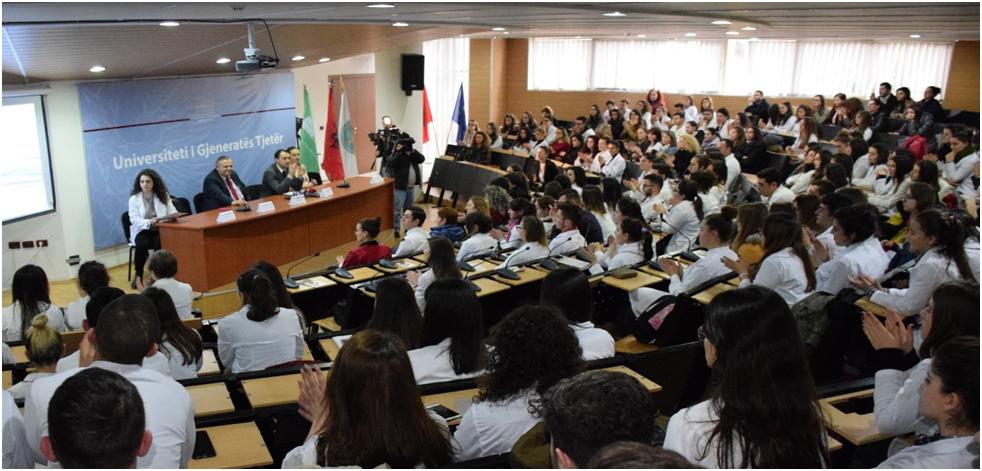
Quoting Plato "the citizen may die even if the human being continues to be alive," Mr. Biba adviced the students to keep alive the sense of citizenship, becoming part of the important decision-making processes, such as elections, just because conscious citizens become part of country’s destiny.
Democratic developments in the country and worldwide prove that the youth plays an important role in maintaining democratic values and systems, and you in particular, as future "healers", stressed Mr. Biba in his speech.
Students discussed with the chairman of CEC on issues that are the subject of public debate on the eve of the political elections of 18 June 2017 in Albania. When being asked about the technology in the elections, Dr. Biba explained: "In any kind of circumstances technology is not bad, but it is fragile referring to countries with certain social-cultural level, as Albania is. Meanwhile related with vote-buying, I can say that, the episode it even present in countries with developed democracy and civic consciousness of the voters prevents this phenomenon."
The Dean and pedagogues of Medicine University estimated the importance of democratic elections for the country integration process, and stressed the necessity of inclusion in the voting process through free voting which an expression of the free will.
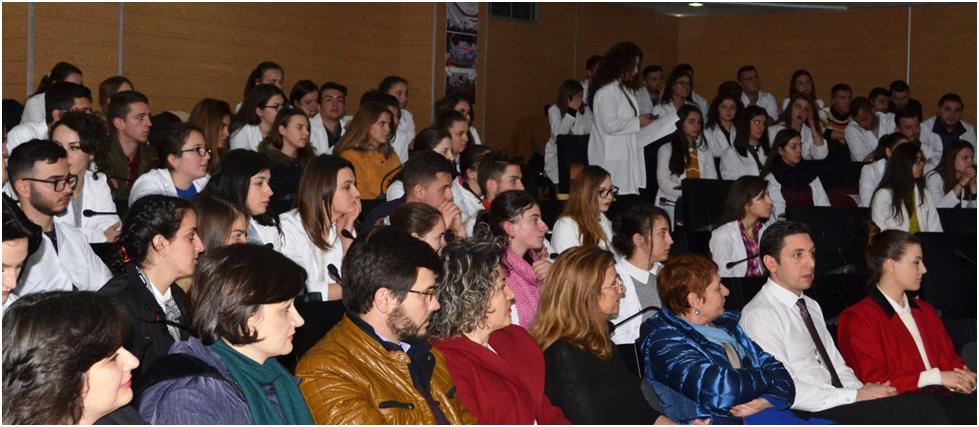
The first-time voters and high school graduates visited CEC premises throughout the day. The aim of this visit was to get information about CEC its work in the organization and administration of elections, as well as to familiarize the first-time voters to the voting process.
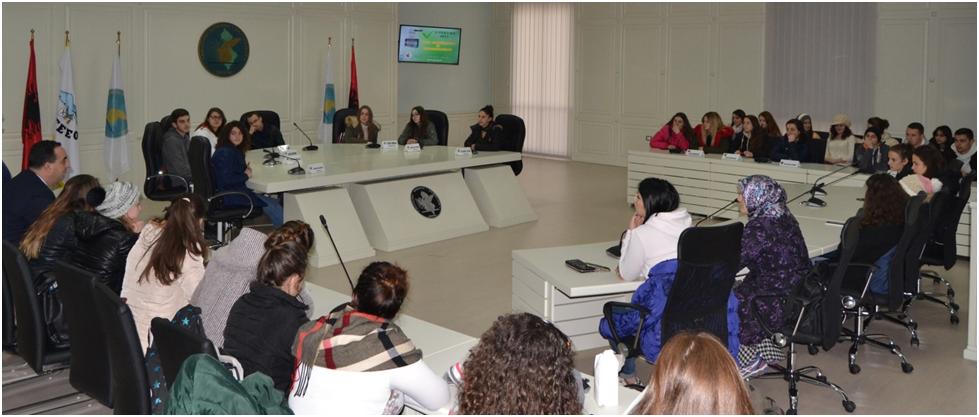
The chairman and members of the CEC, appealed to the youth to participate and vote wisely on elections to be held on June 18, 2017.
“Promoting women’s participation in elections”
The Central Election Commission of BiH has in cooperation with the Ministry for Human Rights and Refugees of Bosnia and Herzegovina and the Agency for Gender Equality organized an event to promote the initiative mark the Global Elections Day in Bosnia and Herzegovina. The event took place on February 2, 2017 in Hotel “Hills” Sarajevo and was dedicated to “Promoting women’s participation in elections”.
The event brought together 56 participants – representatives of the BiH Parliamentary Assembly, Government of Brčko District of BiH, Committee on Gender Equality of the House of Representatives of the BiH Parliamentary Assembly, BiH Ministry for Human Rights and Refugees, Agency for gender equality of BiH, members of Coordination board for implementation of Gender Action Plan of BiH, municipal mayors, speakers of the municipal assemblies, representatives of municipal election commissions, representatives of the OSCE Mission to BiH, non-government sector and the media.
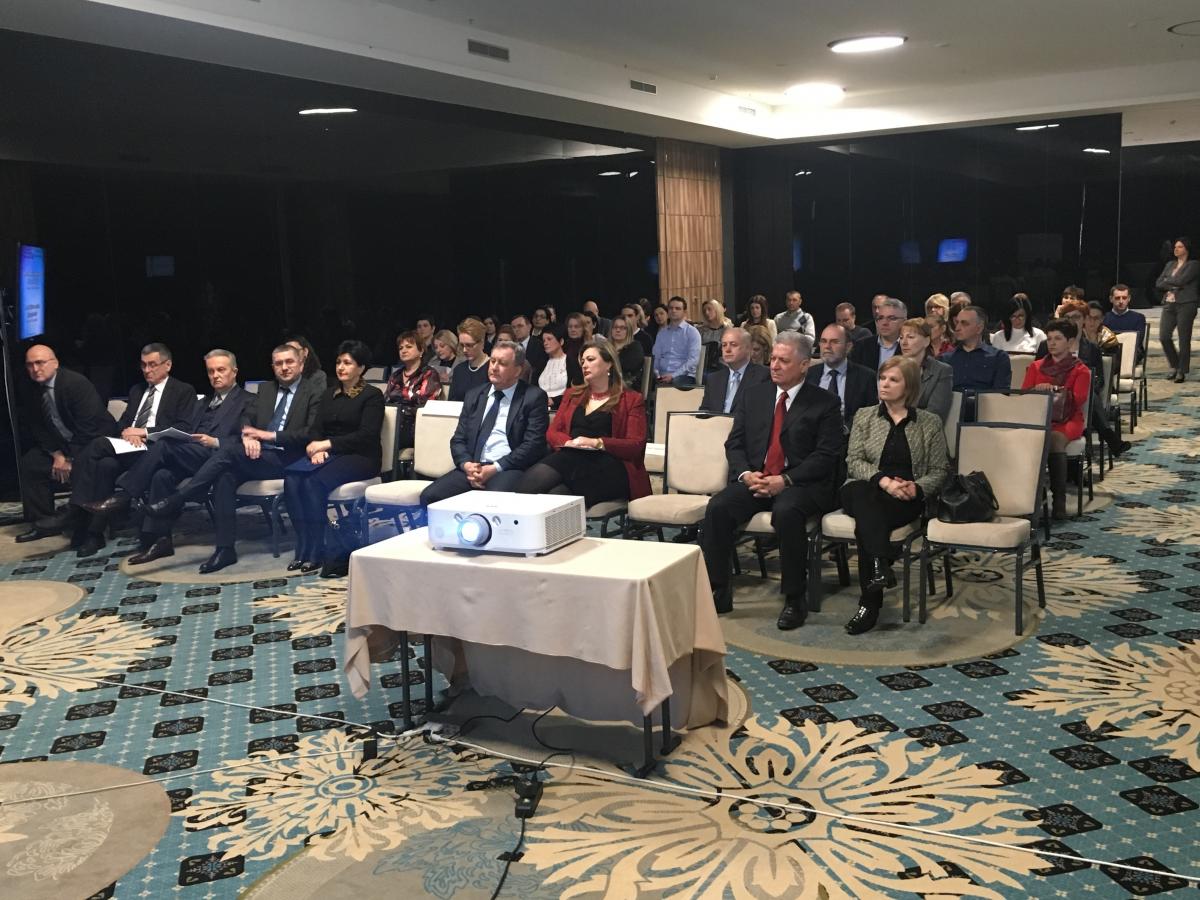
Dr. Irena Hadžiabdić, president of the BiH Central Election Commission and Semiha Borovac, minister for human rights and refugees delivered short introduction speeches.
Dr. Hadžiabdić informed the participants about the history behind the initiative to mark the Global Elections Day and underlined that in our efforts we primarily expect support of the United Nations, since it was actually the UN Declaration of Human Rights declared the right to vote as a basic human right in 1948. “The theme of today's event, which is dedicated to the global topic “Promoting women's participation in elections”, deserves a special place in the BiH society although the participation of women on the BiH political scene is on the rise, we cannot be satisfied. That is why we want to send a message today that everyone, both men and women, should have equal rights and opportunities that will be established and implemented not only through legislation, education, political and economic systems, but also the elections. Bosnia and Herzegovina needs to do more so that women could exercise equal rights and opportunities, as voters, candidates, and elected officials. Bosnia and Herzegovina does not need an illusion of equality”, said dr. Hadžiabdić.
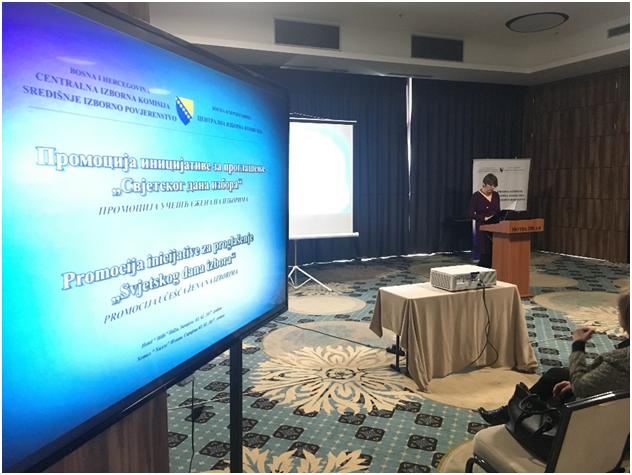
In her speech the minister Semiha Borovac said that the equal participation of women and men in political and public life represents one of the conditions of democracy. Equality and the ability to elect and be elected through elections, to participate equally in the division of functions of government, in public bodies and committees, to represent the government at the international level and to have equal rights in the political arena are formally and legally ensured to women in Bosnia and Herzegovina. Effects of legal and policy measures to increase the participation and influence of women in public and political life are visible, but there is still a phenomenon that percentage of women is reduced by increased level of decision-making position. The participation of women in legislative and executive authorities at all levels is about 20%, which places Bosnia and Herzegovina among the European average. At the last 2016 Local Elections, only six per cent of the candidates for mayor were women, and their percentage on the lists for municipal or city councils was 41 percent, which is only one percent more than the legal minimum.
Ultimately, the number of elected female mayors increased from 5 to 6, and there was a slight increase of women's representation in municipal and city councils or assemblies. All this is not sufficient to say that there is equal gender representation. Although the Election Law is fully harmonized with the Law on Gender Equality in BiH, which requires mandatory participation of 40 percent of the under-represented gender, in this case women, the electorate still rather votes for men. This is the consequence of the lack of female politicians at the decision-making positions, but also of stereotypes about position of women and men in BiH society, especially in the politics. This is a process that takes time, but the time in which we cannot wait for things to happen by themselves, but the time in which we must use all legal possibilities to realize the right of gender equality. Women's participation in politics largely depends on their courage and willingness to enter politics and to be active, and they should be encouraged to do so. Women need to get a better position and representation within their political parties. Political parties must show an interest and willingness to ensure greater participation of women in political bodies, and later on also in bodies of authority. They must also invest more in their promotion because women are almost invisible in election campaigns which often demotivating for women candidates and for those who would like to become candidates. It certainly has an impact on the final decision of voters in the elections. Bosnia and Herzegovina has a large number of educated, good and capable women, to whom we need to give confidence, encouraging them to get involved in all areas of social and political life. Full result can be achieved only by a joint action with the male counterparts - because joint action on the principle of equality is the key to success.
Minister Borovac expressed satisfaction that the initiative for marking the Global Elections Day is promoted by the Central Election Commission, the Ministry of Human Rights and Refugees with the Agency for Gender Equality and the Committee on Gender Equality of the House of Representatives of the BiH Parliamentary Assembly. These partnerships are a guarantee that the gender equality in Bosnia and Herzegovina guaranteed by the Constitution and laws will not remain just a dead letter on the paper. At the same time, this partnership and our presence today at this gathering represent a strong support to promotion of initiative for the celebration of the Global Elections Day. It can also serve as an additional tool to making elections and politics more intelligible and attractive to women, while at the same time making them more acceptable to political parties and voters in our country.
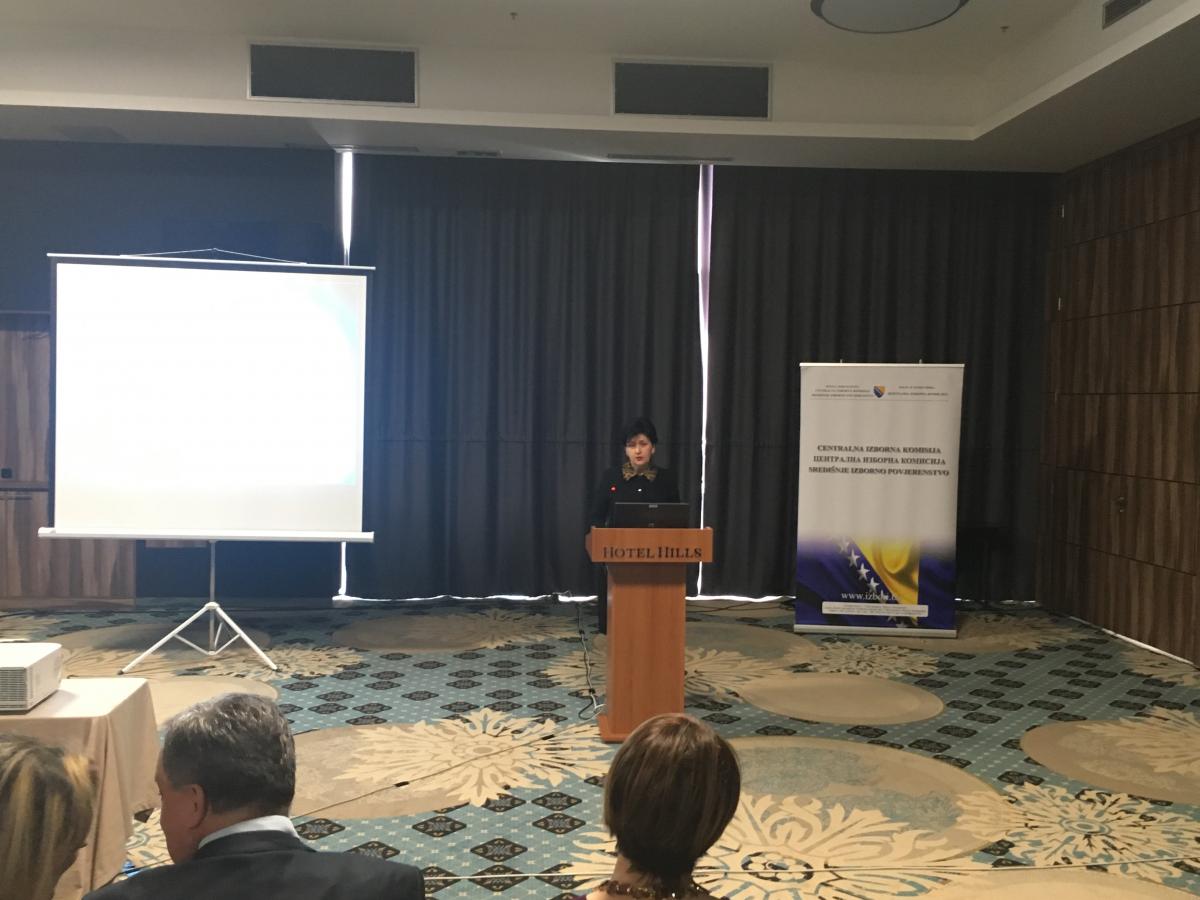
Then, Mr. Mirsad Isaković, chairman of the Committee on Gender Equality of the House of Representatives of the Parliamentary Assembly of Bosnia and Herzegovina delivered a speech saying that election officials carry out a responsible job and that they are guarantee of democracy that is fully displayed through conduct of elections. Preparation and conduct of elections are one of the most challenging public affairs and therefore it is necessary to support the initiative of the Association of European Election Officials for marking of the Global Elections Day. The Law on Gender Equality represents to the Committee on gender equality a measure used to assess the relation other laws, public policies and practices towards gender equality in BiH. The attitude of the Committee on Gender Equality is that one has to be more determined in order to reach the legally prescribed percentage of at least 40% of representation in public and political life of the country. The key question is how to strengthen women within political parties as this would strengthen their influence on party politics as well as their political promotion in the election period and beyond, thus certainly increasing their numbers in the legislative and executive authorities. It is clear that the quota system stipulated in the Election Law together with the preferential voting system does not ensure equal gender representation as it was also concluded by the Venice Commission. Therefore, said Mr. Isakovic, if we are to achieve gender equality in the near future we need to make guaranteed places for the less represented gender in legislative bodies as a temporary measure, in addition to other necessary measures envisaged in the strategic documents that require a consistent and responsible work in synergy of all actors.
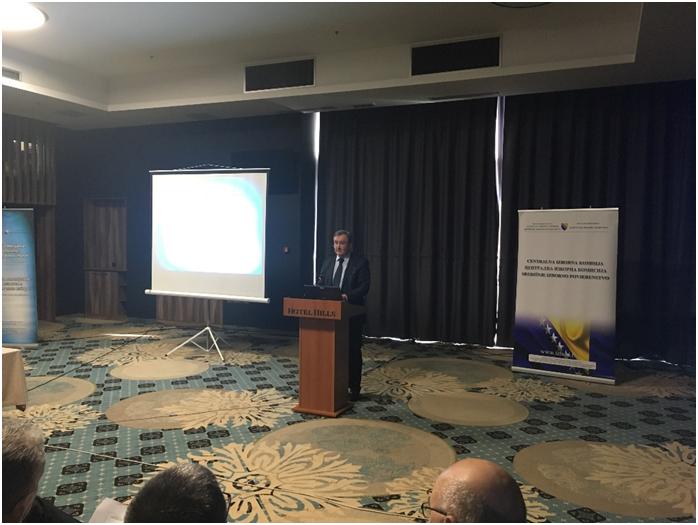
Stjepan Mikić, member of the BiH Central Election Commission delivered a presentation “Gender quotas, how they function and different quota systems”, and Mrs. Samra Filipović-Hadžiabdić, director of the Agency for Gender Equality of BiH delivered a presentation on “Achieving gender equality in political life of BiH – challenges and opportunities”.
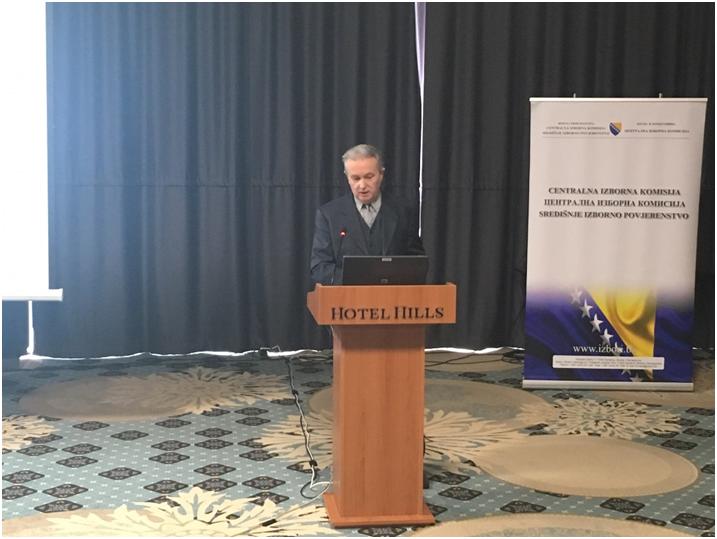
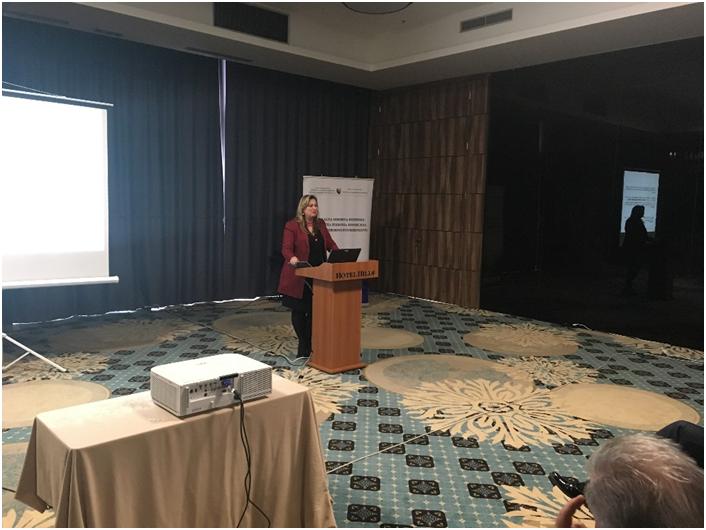
At the end of the event, Mr. Novak Božičković, member of the Central Election Commission, delivered closing remarks recapturing presentations delivered and reiterating that the introduction of gender quotas in the legislation represents only a part of the solution, but that the most crucial thing is to have women elected and therefore a stronger campaign and promotion of female candidates in direct elections in Bosnia and Herzegovina has to be conducted. At the same time, this could be the message of today’s event.
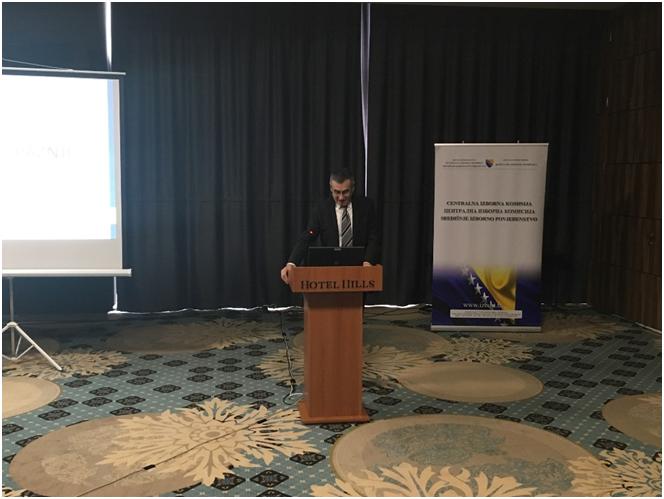
In addition to the central event organized by the Central Election Commission, in cooperation with the Ministry of Human Rights and Refugees and Gender Equality Agency of Bosnia and Herzegovina a recommendation was sent to all municipal / city election commission to mark this day with appropriate events. According to the information received, 20 municipalities in Bosnia and Herzegovina organized different programs to mark the GED: radio shows, lectures at schools and solemn sessions.
BiH Central Election Commission
Media Reports:
Students from the International Black Sea University visited the Central Election Commission (CEC) of Georgia on the occasion of the Global Elections Day.
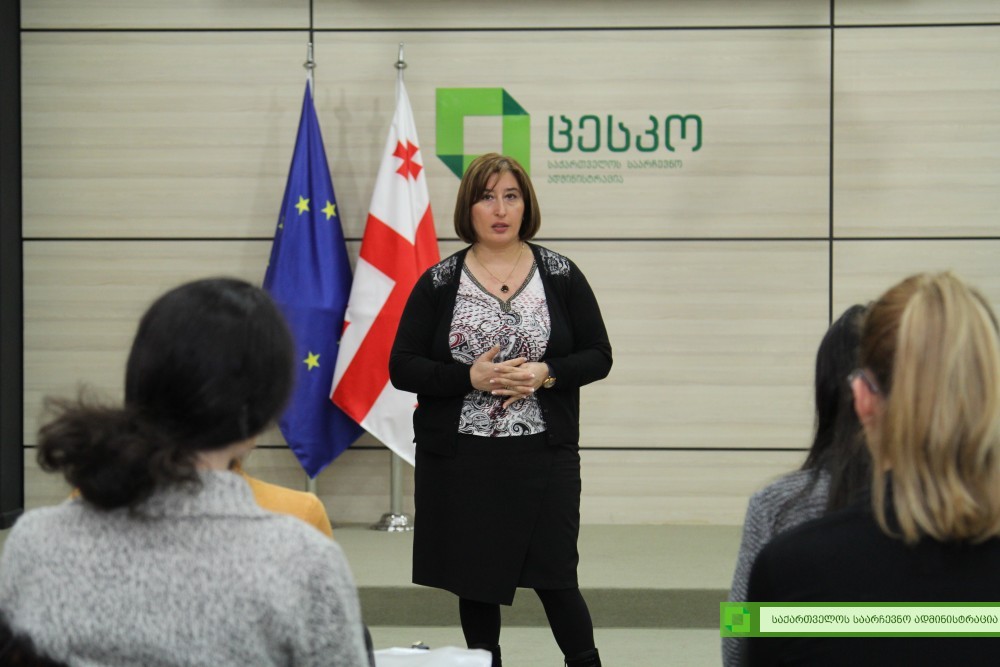
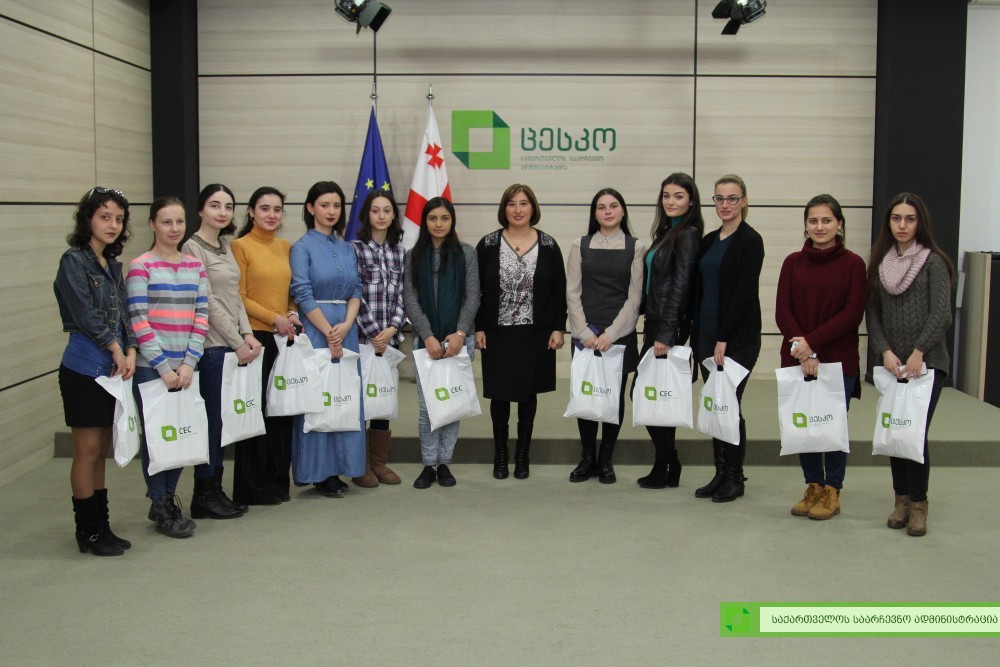
Students of the international law and international relations programs, also students of the public administration and public policy programs met the CEC Chairperson, Tamar Zhvania. Chairperson introduced students with the activities of the Election Administration (EA) and talked about the importance of the elections in terms of the democratic development of the country.
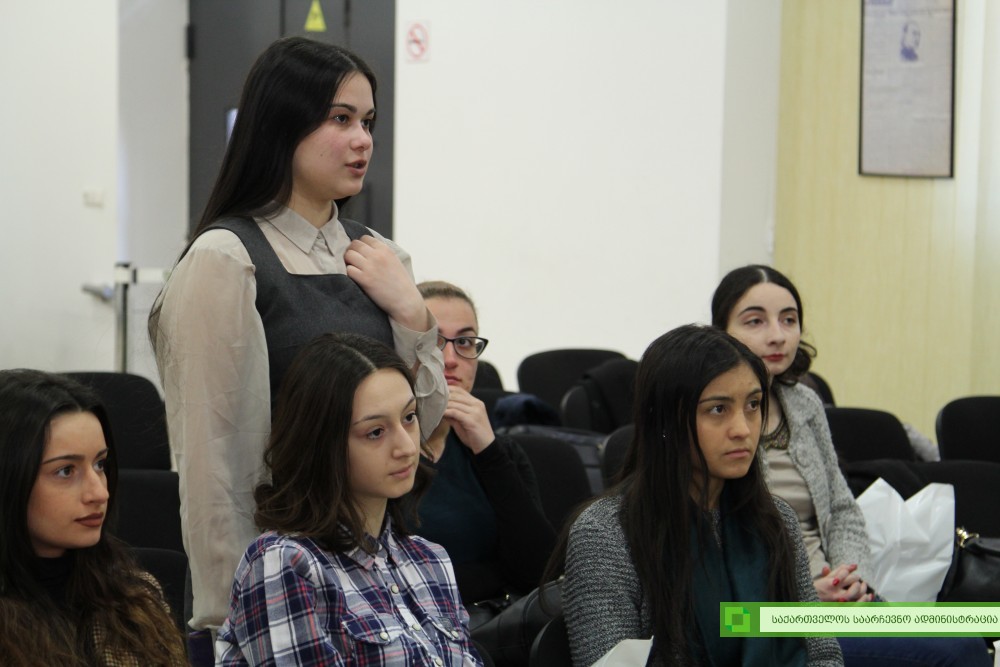
“The EA over the years has been formed into an organization which is focused on the voters. We should remember that the democracy starts with the elections; the elections held fairly and democratically is one of the important components of the development of the country. We have 25 years of history of running the elections and I would like to note, that up to now, since holding the first multiparty elections, we have reached a significant progress,”- admitted the Chairperson with the students during the discussion.
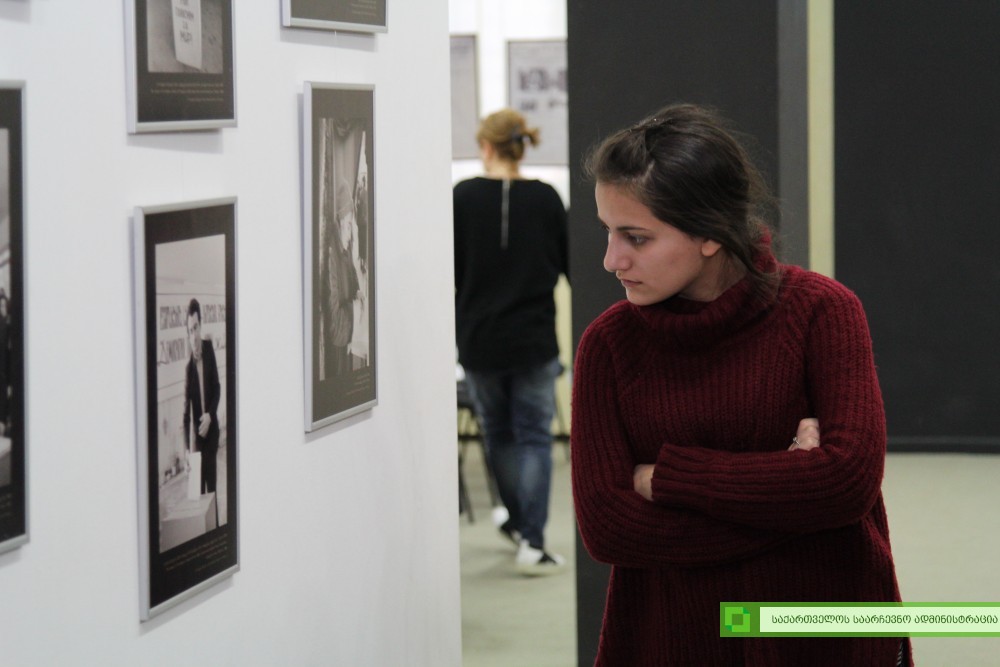
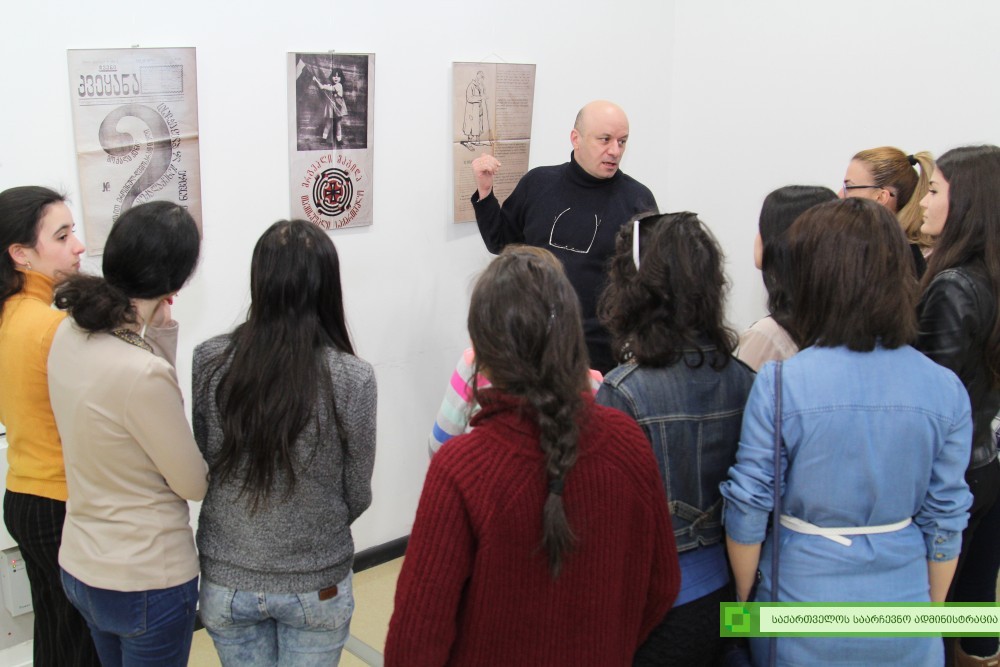
Students visited the exhibited historic photos on the election theme at the CEC. They met with the heads of the CEC Structural Units and CEC Training Center and got acquainted with the specifics of the department’s work.
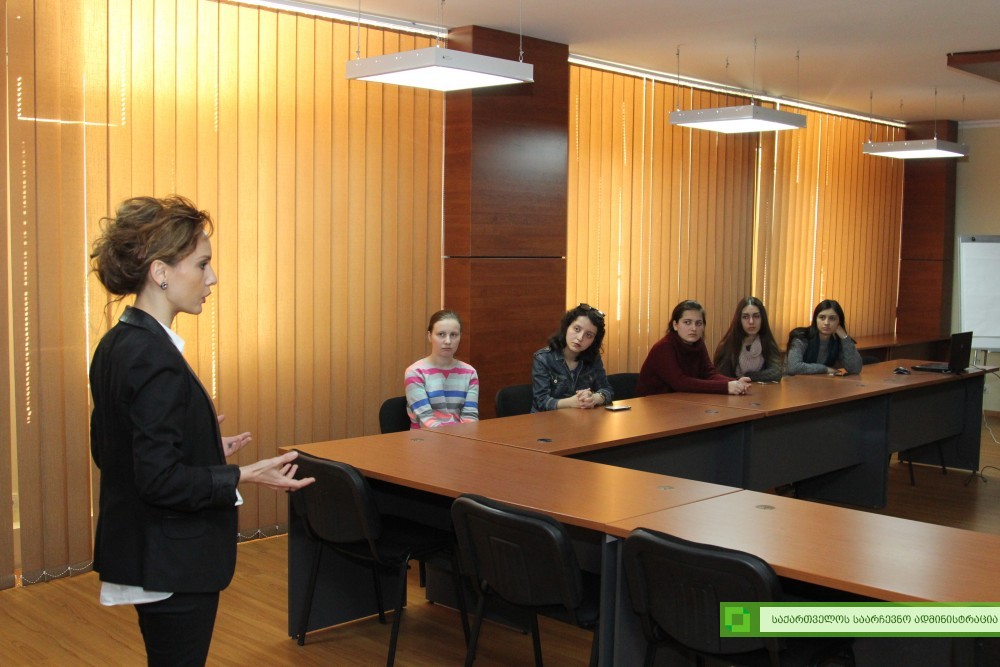
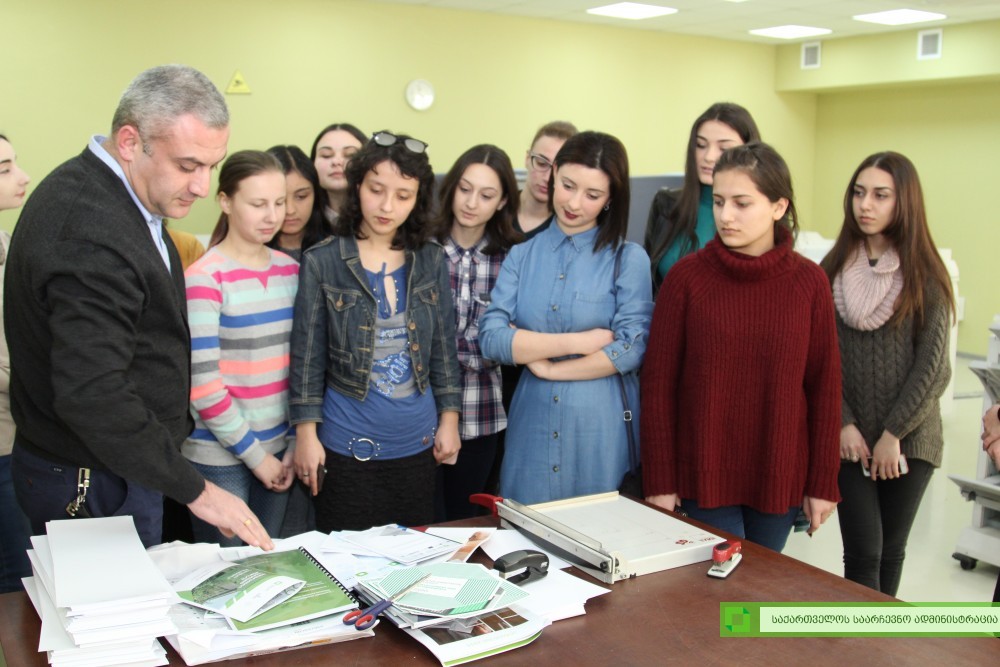
Prishtina, 02 February 2017 –Central Election Commission of Republic of Kosovo, for the fifth time, has joined other countries that marked the Global Elections Day on 2nd of February.
Through the marking of this day, Central Election Commission expresses commitment to continue to meet constitutional and legal deadlines, as an independent institution and for advancement of election processes in our country.
On this day, Central Election Commission has published in three languages (Albanian, Serbian and English) the document titled: “Elections in Kosovo 2000-2014”, which is a collection for this period of data of election processes of fourteen years.
In this solemn event, where representatives of institutions, political parties, civil society and international organizations dealing with elections have participated, President of CEC Ms. Valdete Daka spoke for the history of this day and of the institution that she directs for the adaption of requirements in this time of big technological developments.

Speaking in behalf of CEC, President Daka brought the attention to the membership in Association of European Election Officials (ACEEEO), on the fall of 2016, evaluating this as an extraordinary success as it will be a valuable space to gain knowledge or contribute.

Central Election Commission marks the Global Elections Day since 2013 through organizations where the key word is the importance of the vote and promoting the democratic values that are related to the field of elections.
This year, the Central Commission for Elections and Referendums of the Kyrgyz Republic together with their colleagues from different countries also celebrated the Global Elections Day by organizing Open Day for secondary school and university students.
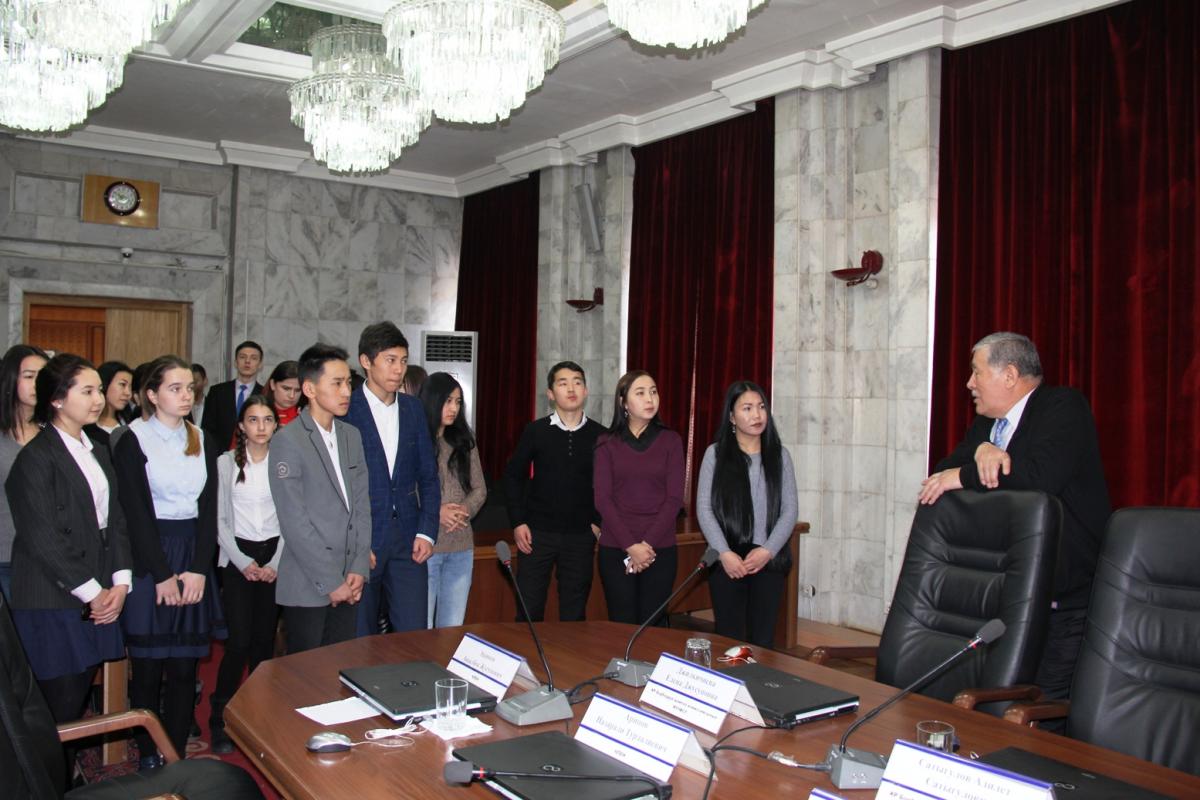
In the framework of the celebration a guided tour was organised in the office of the CEC. Members of the CEC held lectures on the topic of elections and on the achievements of the CEC in application of advanced technologies. In addition, students participated in election-themed games and received symbolic presents.
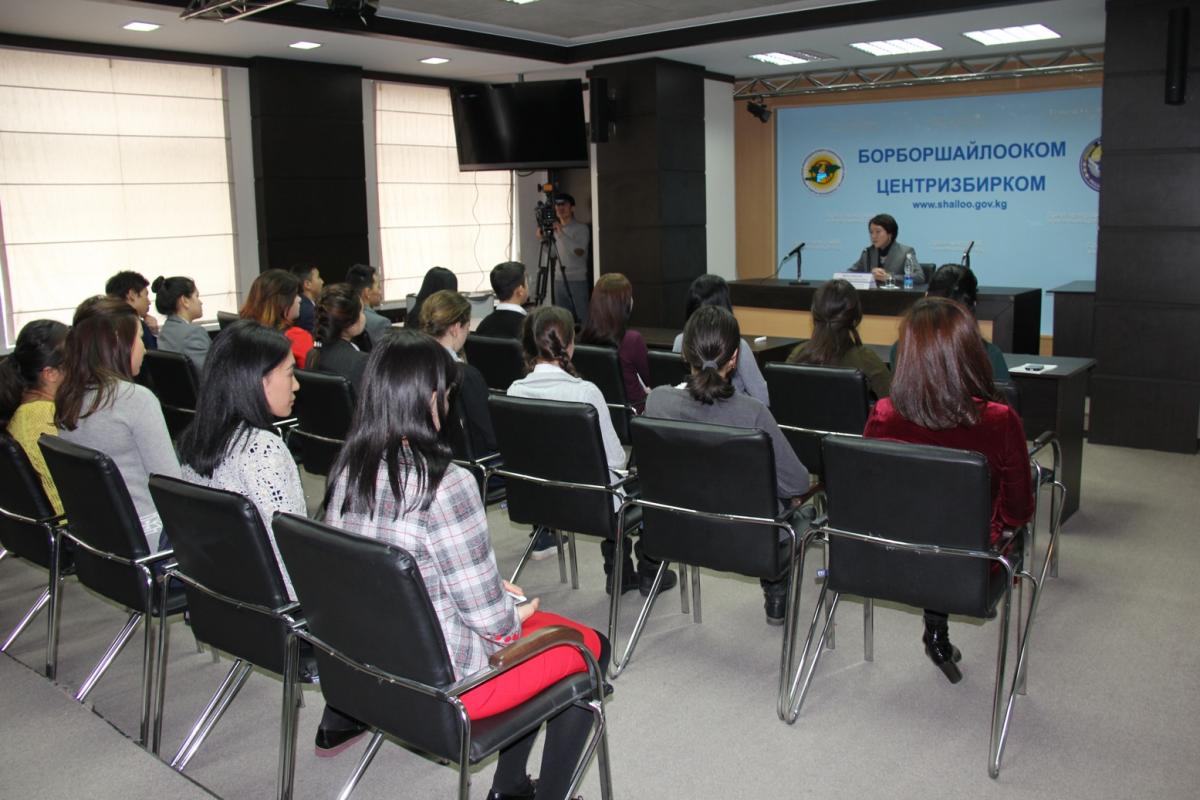
Commemorating the Global Elections Day is very important for the CEC that aims to enhance voters’ awareness about its work, as well as to increase the turnout of voters on elections and referendums.
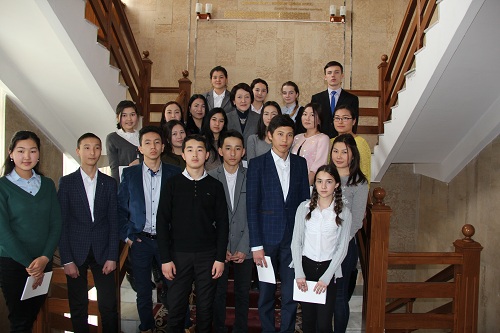

For celebrating the Global Elections Day, the Central Electoral Commission of the Republic of Lithuania (CEC) has organized a round table discussion on “The transparency of political advertising vs. freedom of the media” in the Seimas of the Republic of Lithuania. Zenonas Vaigauskas (Chairman of the CEC), Rokas Stabingis (Member of the CEC), Dainius Radzevičius (Chairman of the Lithuanian Journalists’ Union), Vaiva Žukienė (Chairman of the Ethics Commission of Public Information), Aistė Žilinskienė (Chairman of the Internet Media Association) and Audronė Nugaraitė (professor of Vytautas Magnus University) have taken part in this discussion.
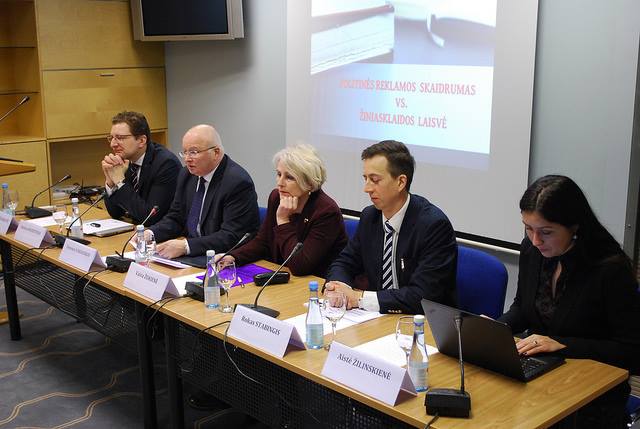
The Chairman of the CEC Zenonas Vaigauskas has greeted everybody and has given news about the “OSCE/ODIHR Election Assessment Mission Report” regarding the Parliamentary Elections of the Republic of Lithuania, on 9 October 2016. OSCE/ODIHR has affirmed that the parliamentary elections were competitive and pluralistic and that they offered voters a broad choice of political alternatives. Contestants enjoyed equitable conditions for their political campaigns and competed in a process characterized by respect of fundamental freedoms. Moving from issues identified in past elections, and despite the background of scandals of corruption earlier occurred in the years, elections took place under an overall strengthened legal framework with enhanced oversight and law enforcement. The positive valuation has been also confirmed by „Democracy Index 2016”, the study of the British business magazine The Economist: it has rated with high score (9.58) the Lithuanian electoral process and pluralism and it has placed them among the world's best.
During the discussion, the member of the CEC Rokas Stabingis has presented the targets of regulation of political advertising. He has underlined that free and fair elections are the base of democracy. Voters should not be misled and information should be given in a way that it could be possible to distinguish clearly political advertising from usual information. The confidence in elections can be guaranteed only by such type of struggle, by participants who do not breach the norms of the Constitution and of other legal acts, the norms of morality, justice, social harmony, integrity and dignity.
Other problems regarding the relationship between political advertising and freedom of media were also discussed, i.e.: the similarities and differences existing between political advertising and journalistic works; limits to journalists’ freedom of expression; distinction between legally regulated political advertising and regular advertising.
The Chairman of the Lithuanian Journalists’ Union Dainius Radzevičius has rhetorically wondered if and how we should (not) speak in public during the electoral campaign. He assumed that the existing legislation is imperfect, nonetheless it is not possible to resolve everything by legal amendment: according to him, in fact, it is necessary to strengthen the self-regulatory mechanisms of politicians, media, society, etc.
A lot of attention has been received by the presentation of Professor Audronė Nugaraitė, who has introduced the problem of the influence over the “users” of political advertising. She has presented characteristic examples of political advertising which has been immoral and misleading. It has also been underlined that these types of political advertising can be, at the same time, also legal.
The representatives of the Ethics Commission of Public Information have reported on the experience of collaboration with CEC. It has been underlined that these types of partnerships give a good result in controlling political advertising.
The participants in the discussion have agreed that the cooperation among the CEC, the “Ethics Commission of Public Information” and the Journalists’ self-regulatory organizations could considerably help in ensuring high standards of professional ethics in media.
The video of a round table discussion on “The transparency of political advertising vs. freedom of the media” can be found out here.
The State Election Commission of Macedonia traditionally celebrates the Global Elections Day organizing meaningful events.
This year, the SEC celebrated the Global Elections Day holding a meeting with representatives from the Civil Association MOST, which is one of the biggest civil society organisations dealing with electoral matters in Macedonia.
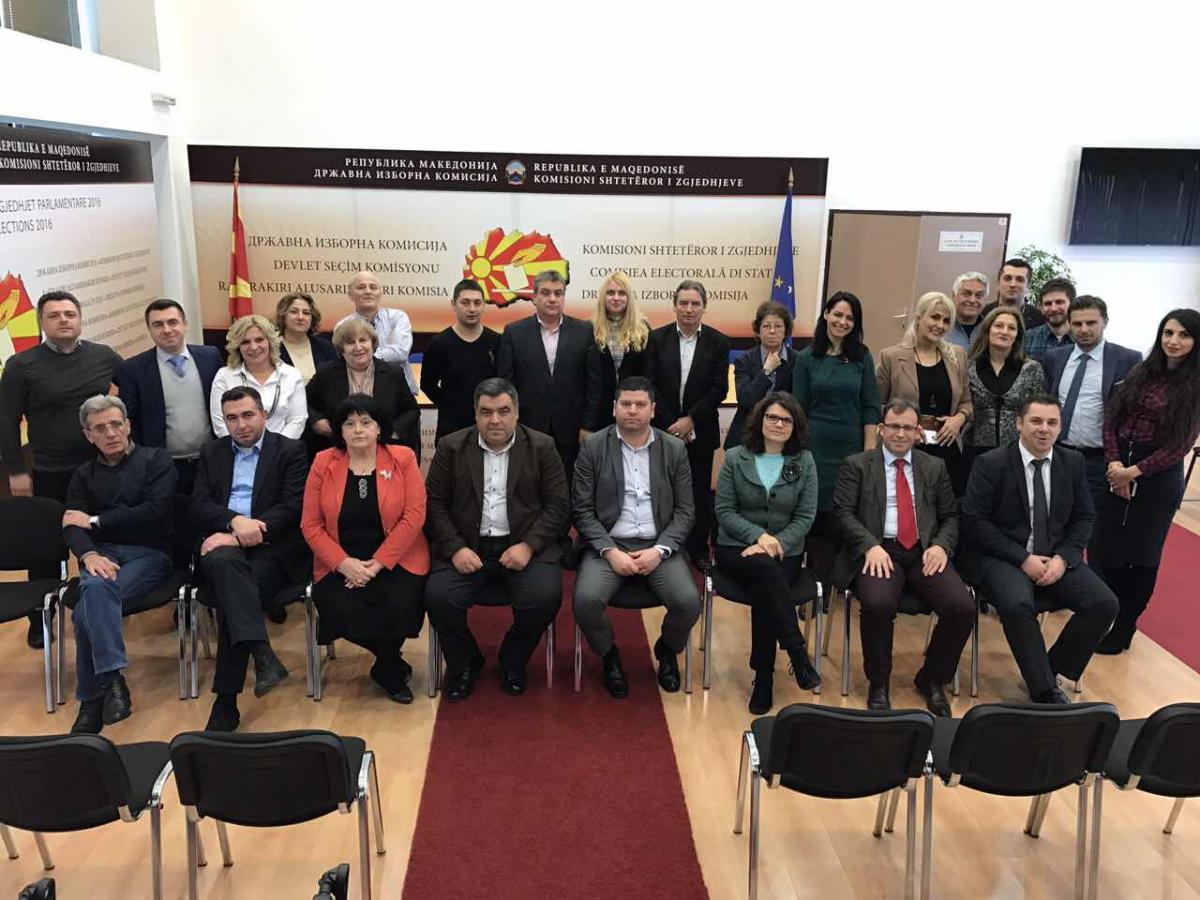
For this particular occasion, Civil Association MOST handed over to the SEC a database of decisions and convictions following electoral dispute processes in the country. The database was prepared by MOST. The database is public and open for any interested user on the web site.
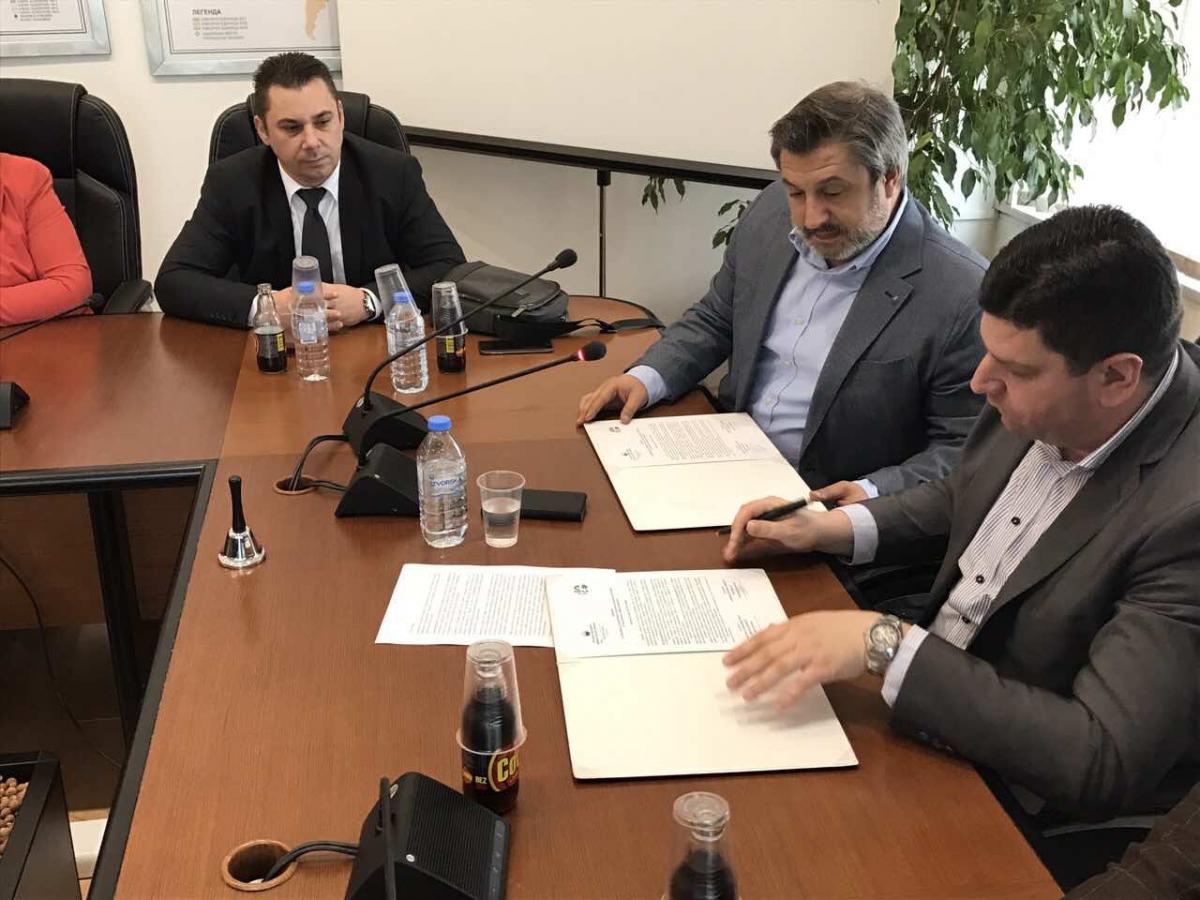
Both organisations agreed that they would further deepen their collaboration.
The SEC of Macedonia stays committed to the values of democracy and free and fair elections, which the Global Elections Day fortifies and stands for.
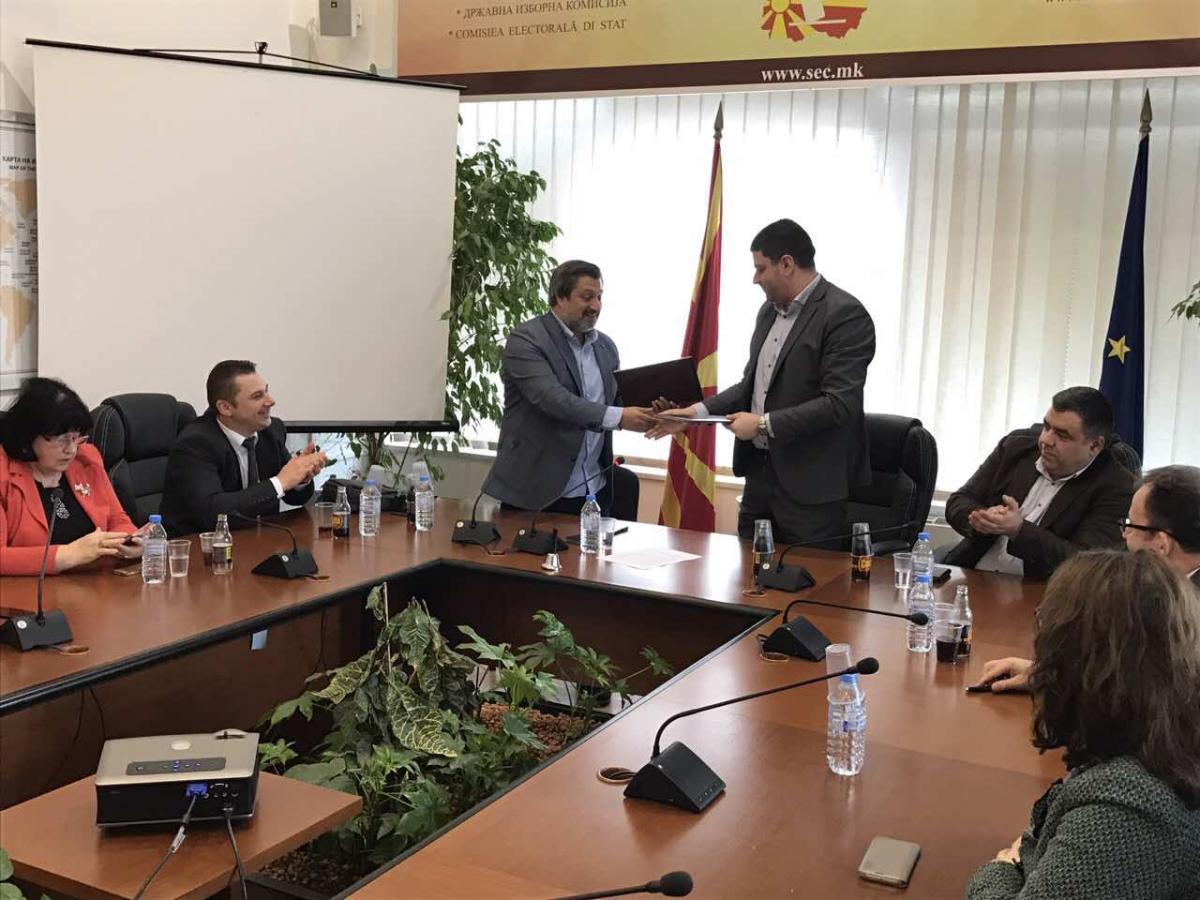
On 2nd February 2017, Central Election Commission of the Republic of Moldova (CEC) celebrated for the 10th time the Global Elections Day. In the morning the Commission organized a briefing for mass media, during which the Chairperson, Ms. Alina Russu congratulated electoral stakeholders and all the citizens with Global Elections Day. Also, she spoke about the role and importance of elections, main achievements of the 2016 and future plans. Ms. Chairperson reiterated the Commission’s commitment to democratic values and gave assurances that CEC will continue to position itself as an open, transparent and professional institution that will guarantee an accessible, secury and trustworthy electoral framework.
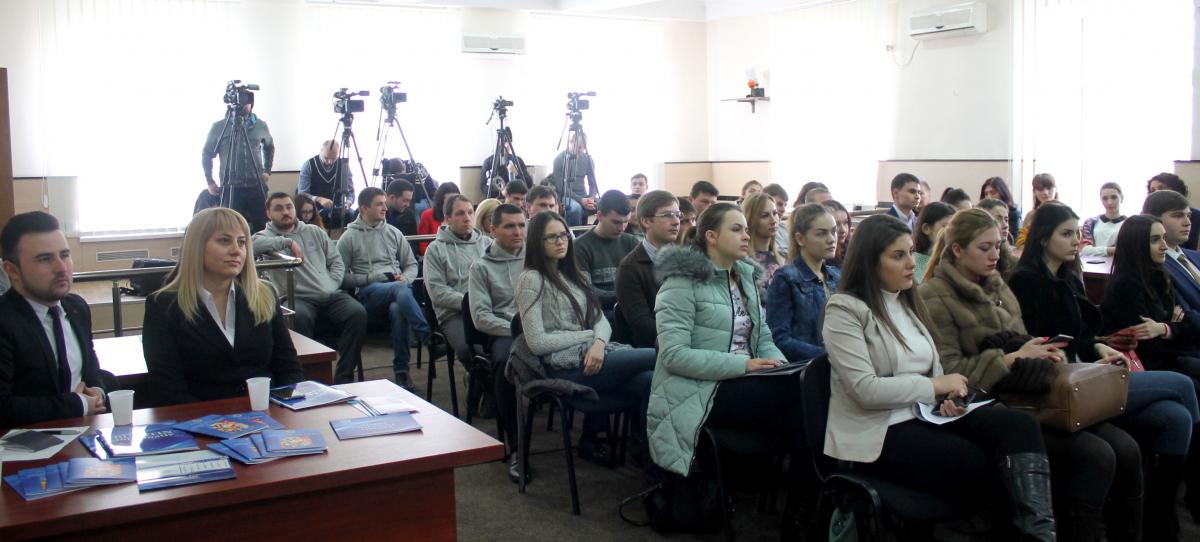
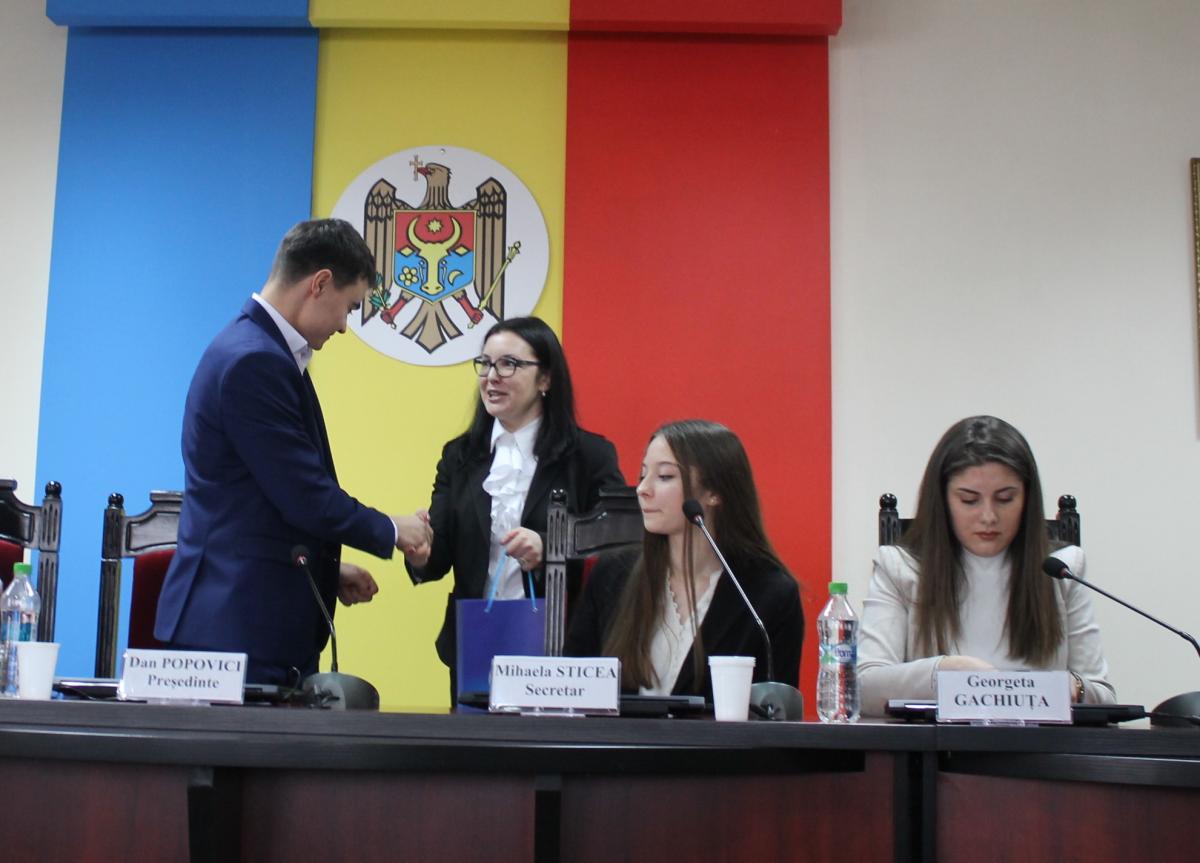
Also, CEC held the Open Doors Day event for a group of students from Moldova universities. This action of civic education has had the objective to familiarize young people with various aspects of the Commission's work and to motivate them to participate in all stages of the electoral process as voters, candidates, poll workers, observers, volunteers, trainers etc. Nine students also had the opportunity to participate in a Mock meeting of the CEC Moldova. They have simulated the roles of the CEC Chairperson, Deputy Chairperson, Secretary and Members. During the meeting, students debated two decisions regarding the opportunity of introduction of an alternative voting method in the Republic of Moldova in order to solve the issue of elections accessibility for different target groups, including citizens from abroad. Between the e-voting and proxy/mail voting, they have opted for the first method.
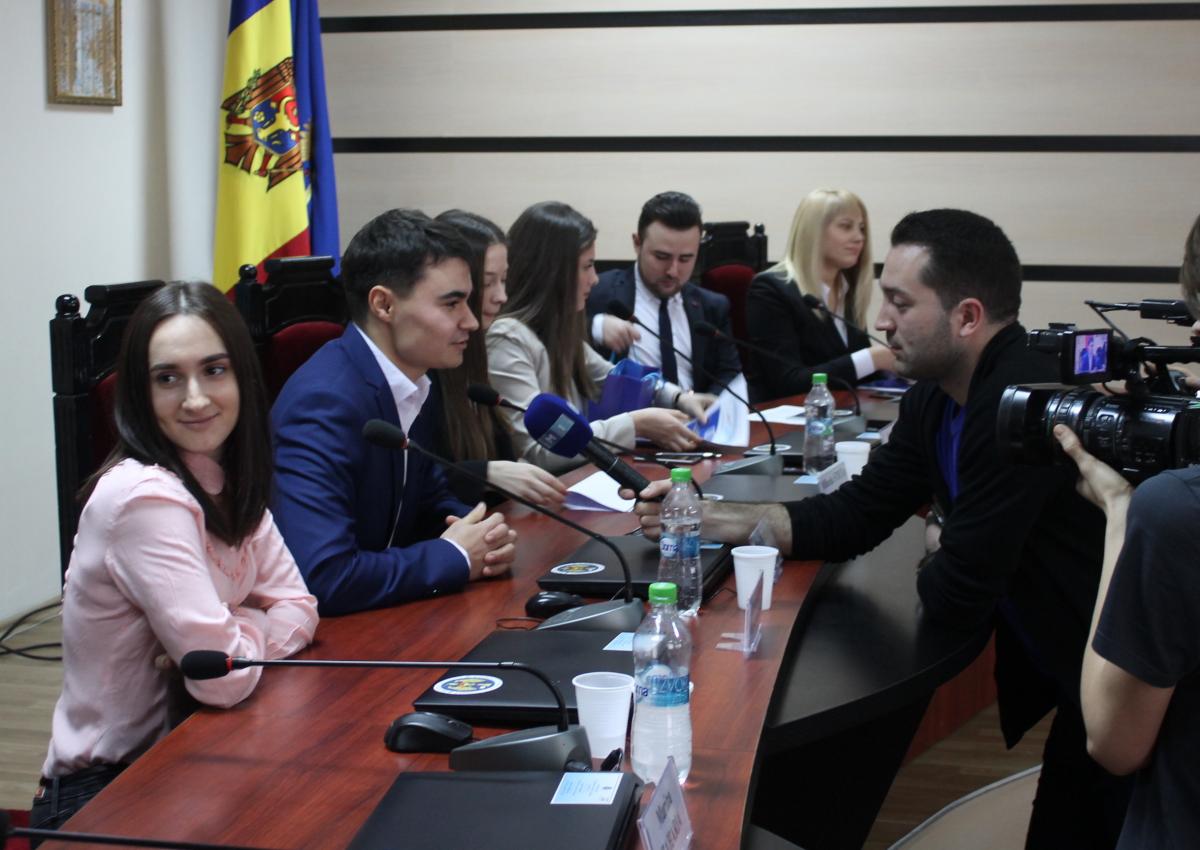
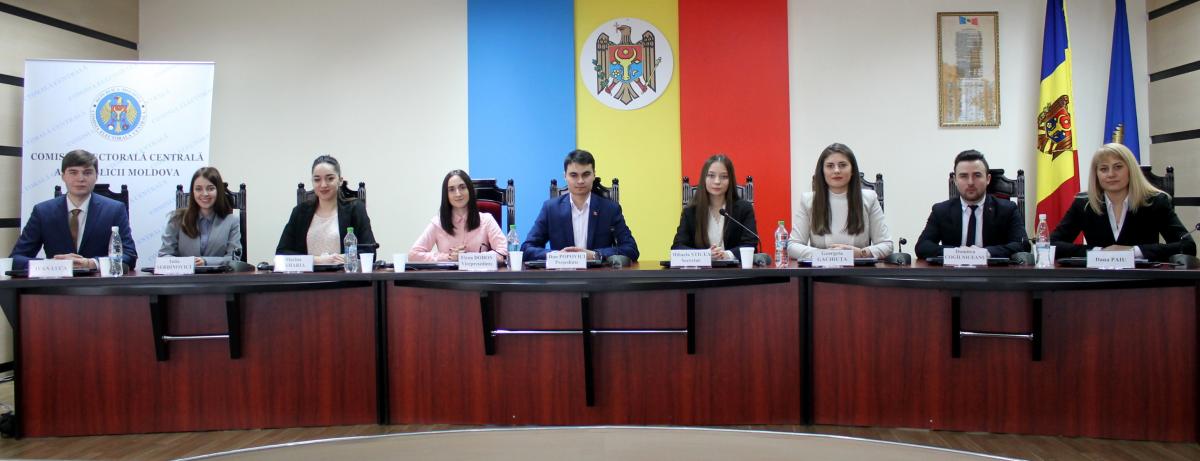
During a week period, CEC gave a series of lectures under the topic "My vote, my voice" for students from the universities from the Republic of Moldova. The goal of the seminars was to inform young voters regarding the legal and practical issues related to the organization and conducting elections in the country, their electoral rights and obligations and to motivate them to be active and to get involved in all stages of the electoral process as voters, candidates, poll workers, observers, volunteers etc.
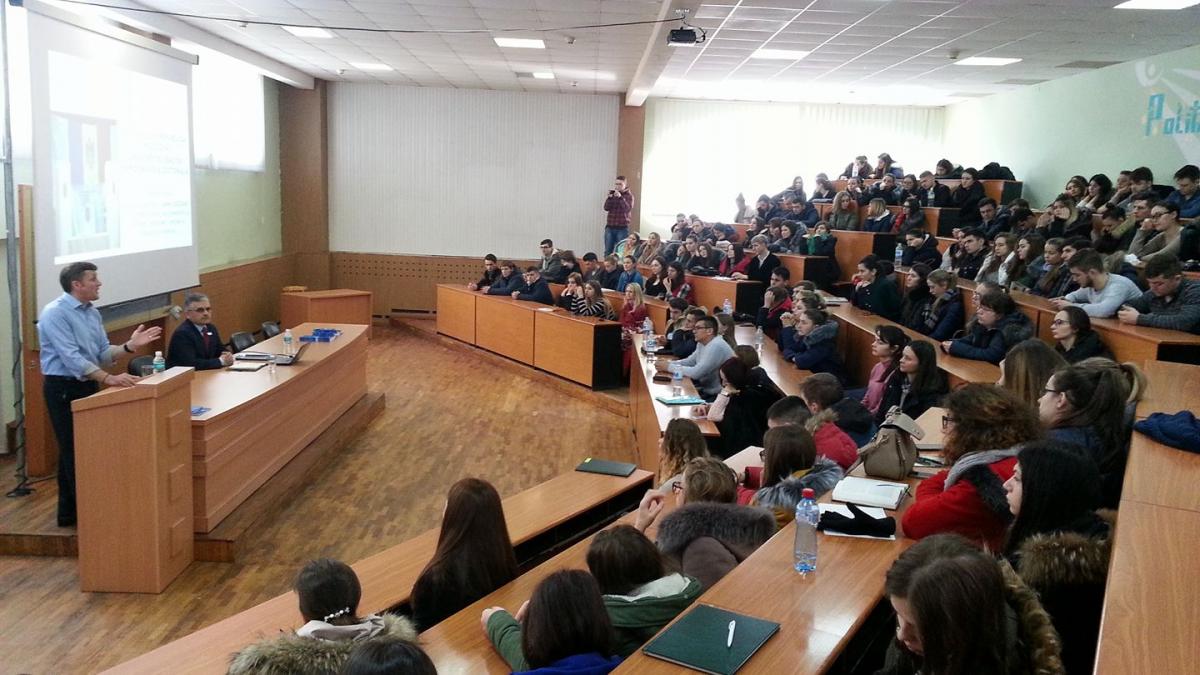
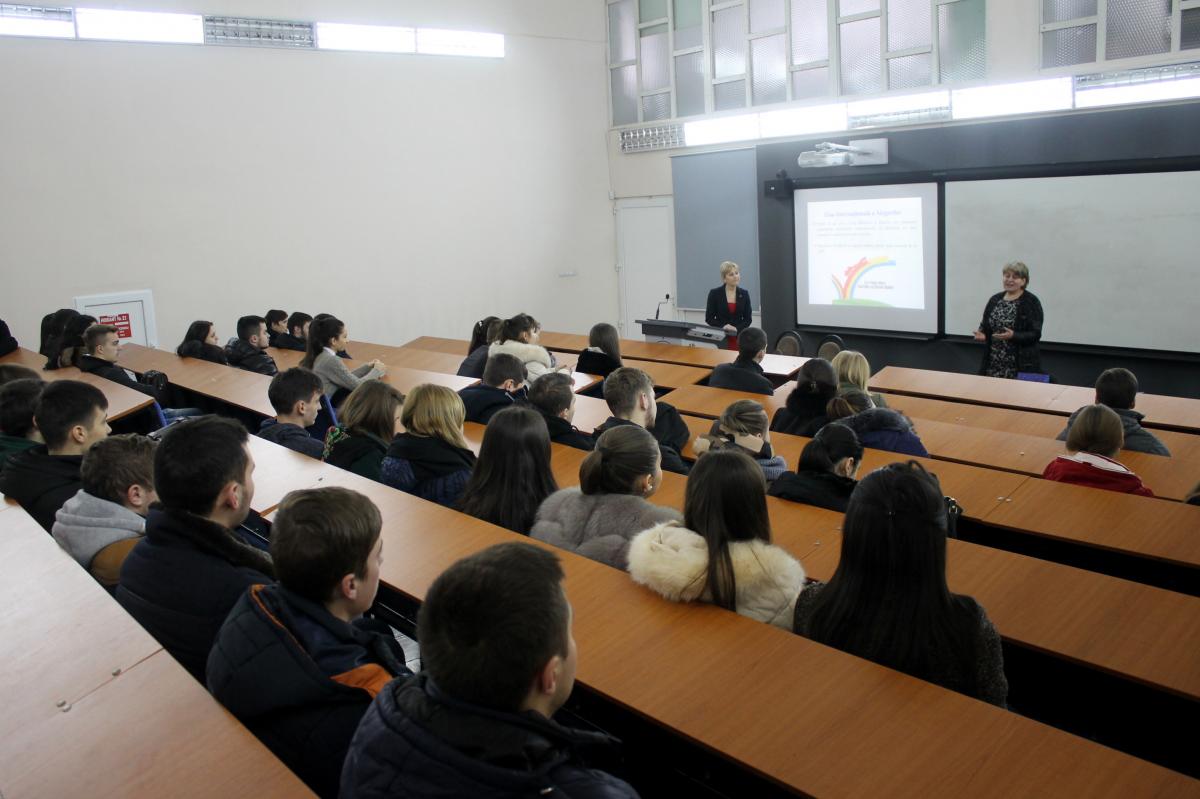
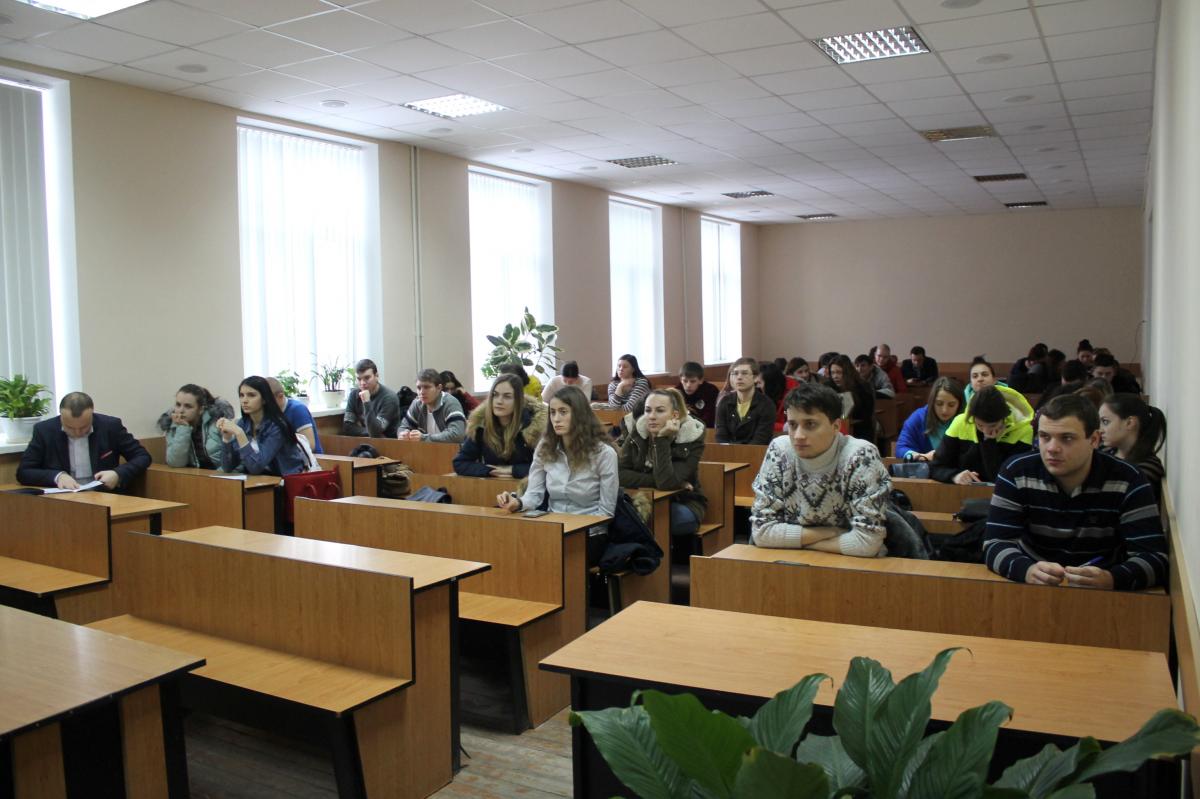
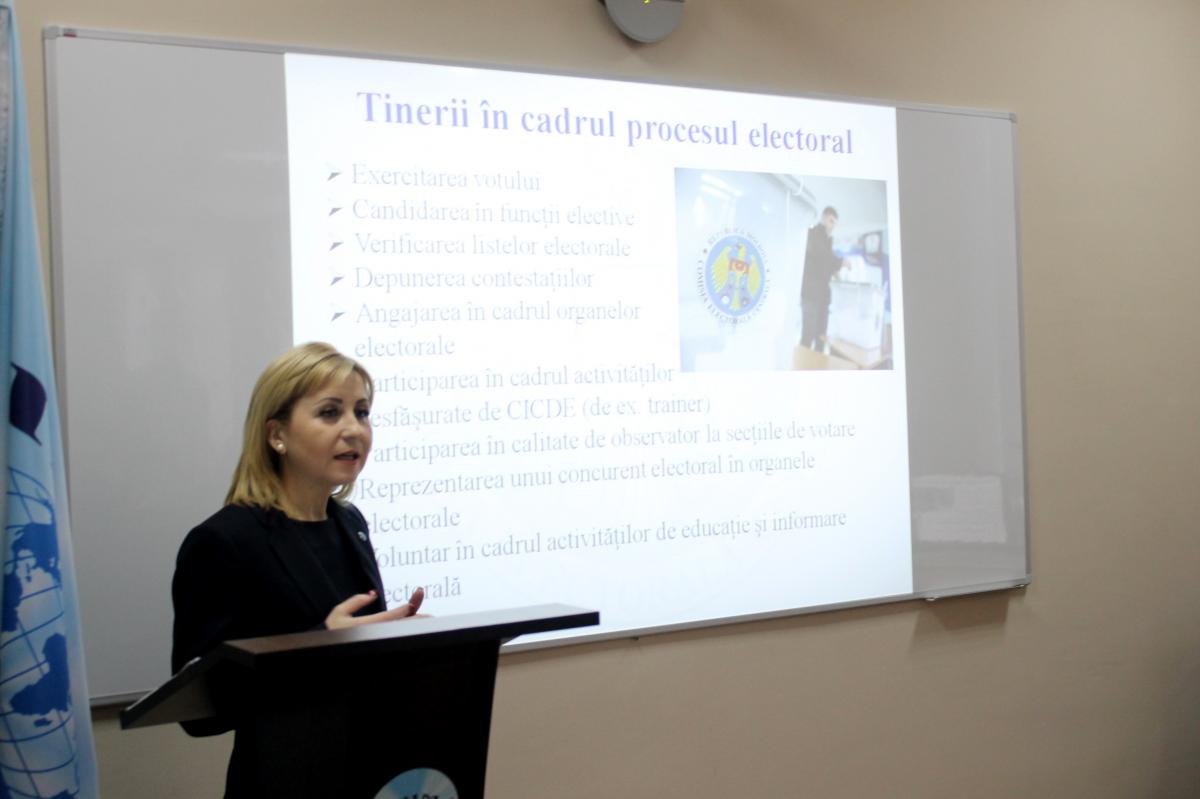
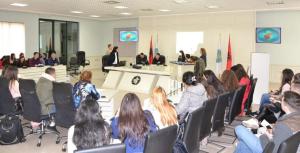 The Global Election Day was celebrated by Central Election Commission of Albania throughout a series of activities organized with the graduates of secondary school, first time voters and students of the “Albanian University”.
The Global Election Day was celebrated by Central Election Commission of Albania throughout a series of activities organized with the graduates of secondary school, first time voters and students of the “Albanian University”.
It has already become a tradition for Central Election Commission of Albania to open the doors of the institution to young generation and inform them about the work carried out for the organization and administration of the elections, as well as dialogue on the electoral process, on the importance and value of their vote for democracy and the European future of the country.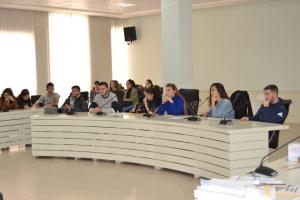
Over 200 graduates and 70 students participated in election awareness sessions, where topics addressed aimed at informing the youth about the June 30th election process, the rights and duties of the electorate in the process, in legal and practical terms and criminal offenses that violate free vote and democratic election system.
Commissioners of CEC, Mr. Bledar Skënderi and Mrs. Edlira Jorgaqi, and administration of CEC, in their active discussion with the audience stressed the importance of participation in election as evidence of an active and conscious citizen.
Voting simulation was organized for the graduates, where they involved in roles as commissioners, voters, observers, and media representatives, became familiar with the role, duties and responsibilities of the actors in the process and voting procedures.
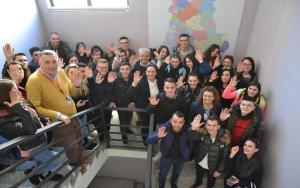 The organized competition for students "How much I am informed about the elections" demonstrated the interest and appreciation of young people on the importance of democratic elections, their awareness of becoming part of the country's destiny with free and uninfluenced votes.
The organized competition for students "How much I am informed about the elections" demonstrated the interest and appreciation of young people on the importance of democratic elections, their awareness of becoming part of the country's destiny with free and uninfluenced votes.
The leaflets on criminal offenses in election, provided to young people complete information on the actions through which election offenses were committed and the measure of punishment for them.
The sessions ended with an appeal to participate and vote cleverly in the elections of June 30th, being well-informed, voting without being influenced and denouncing any action affecting the free vote.
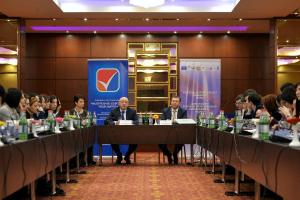 On the occasion of the “Global Elections Day”, the Central Electoral Commission of the Republic of Armenia, within the framework of the Electoral Support Project in Armenia (ESPA), organized a round-table discussion with stakeholders of electoral processes on February 7, 2019.
On the occasion of the “Global Elections Day”, the Central Electoral Commission of the Republic of Armenia, within the framework of the Electoral Support Project in Armenia (ESPA), organized a round-table discussion with stakeholders of electoral processes on February 7, 2019.
Representatives of the political parties running in the Early Elections to the National Assembly held on December 9, 2018 and Civil Society organizations took part in the event. The participants discussed problems that emerged during the Early Elections to the National Assembly with regard to the accreditation processes of observers, the legal regulations of election campaign and the funding of campaign and the voting procedures. Issues relating to electoral disputes and resolution thereof were also discussed during the round-table discussion.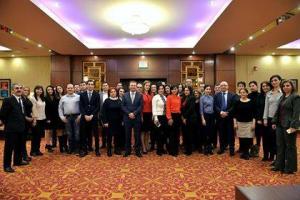
As a result of the discussion, the representatives of the political parties and the Civil Society organizations represented opinions and recommendations on the improvement of the transparency and efficiency of the electoral processes and the work of the election commissions.
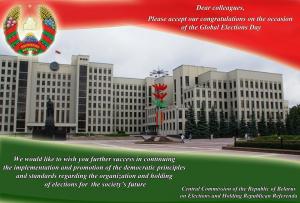 On the occasion of the Global Elections Day, the Central Commission of the Republic of Belarus on Elections and Holding Republican Referenda held a meeting with the members of the Youth Chamber at Minsk City Council of Deputies.
On the occasion of the Global Elections Day, the Central Commission of the Republic of Belarus on Elections and Holding Republican Referenda held a meeting with the members of the Youth Chamber at Minsk City Council of Deputies.
Lidia Ermoshina, the Chairperson of the Central Commission of the Republic of Belarus on Elections and Holding Republican Referenda told young people about electoral system of the Republic of Belarus and approaching electoral campaigns in Belarus. 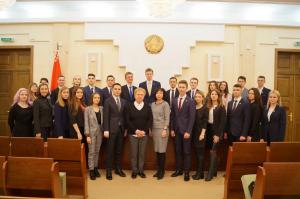 The guests were introduced with the activity of the Central Commission. The Chairperson reminded the members of the Youth Chamber of the importance of the elections, wished the guests not to be indifferent but to be motivated in participation in elections and to find time to participate, to be sensible of responsibility for the country’s future because every vote is important.
The guests were introduced with the activity of the Central Commission. The Chairperson reminded the members of the Youth Chamber of the importance of the elections, wished the guests not to be indifferent but to be motivated in participation in elections and to find time to participate, to be sensible of responsibility for the country’s future because every vote is important.
Lidia Ermoshina answered the questions of the members of the Youth Chamber.
At the Conference of the Association of the European Election Officials (ACEEEO) held in 2005 more than 20 member states have agreed to launch an initiative to mark first Thursday in February as a day, which would represent a trademark of democratic elections worldwide, namely as the Global Elections Day.
The BiH Central Election Commission has been promoting the initiative for fourteen years already. On that occasion the BiH CEC held today a meeting with the employees of the BiH CEC Secretariat. Mr. Branko Petrić, president of the BiH Central Election Commission, delivered a short speech.
A joint message was sent that continuous efforts must be made to improve election legislation and election process. Every previous elections always provide an opportunity for the EMBs to introduce more quality in terms of organization, independence and transparency of work, but are also an opportunity for the legislator to eliminate all shortcomings and to improve the election process on time.
The BiH Central Election Commission had on February 6, 2019 invited the municipal/city election commissions in Bosnia and Herzegovina to organize events in schools or at other adequate locations in their municipalities or regionally, as to give their contribution to promotion of the initiative to mark the Global Elections Day.
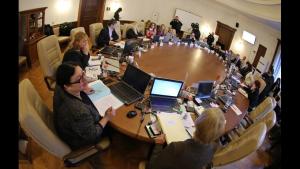 The Central Election Commission of the Republic of Bulgaria celebrated the Global Elections Day, organizing once again an Open Doors Day for citizens and the media. This year there was a great media interest in the event and it received broad coverage.
The Central Election Commission of the Republic of Bulgaria celebrated the Global Elections Day, organizing once again an Open Doors Day for citizens and the media. This year there was a great media interest in the event and it received broad coverage.
The chairperson, Ivilina Alexieva-Robinson, greeted the members of the Commission, attending media representatives and the citizens with the celebration. She reminded that the decision to celebrate the Global Elections Day every Thursday of the first week of February was taken in 2005 at an АСЕЕЕО international conference, highlighting the role and position of АСЕЕЕО in supporting democratic electoral processes – 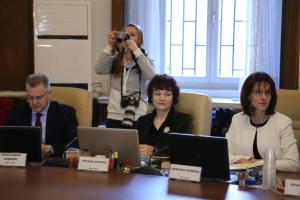 from ensuring transparency in the electoral process, the role and participation of the media, electoral technologies, financial reforms, equal treatment of women, minorities and disadvantaged people, to the active participation of all citizens in the electoral process. Ivilina Alexieva-Robinson emphasized on the mission of election management bodies to ensure the exercise of voting rights by every voter and the implementation of legitimate, free and fair elections. She pointed out that elections are important – for democracy, for society and for every citizen. They require responsible attitude, responsible behavior and responsible decisions. In this context, she personally addressed CEC members with gratitude for their professionalism.
from ensuring transparency in the electoral process, the role and participation of the media, electoral technologies, financial reforms, equal treatment of women, minorities and disadvantaged people, to the active participation of all citizens in the electoral process. Ivilina Alexieva-Robinson emphasized on the mission of election management bodies to ensure the exercise of voting rights by every voter and the implementation of legitimate, free and fair elections. She pointed out that elections are important – for democracy, for society and for every citizen. They require responsible attitude, responsible behavior and responsible decisions. In this context, she personally addressed CEC members with gratitude for their professionalism.
Following the opening of the Open Doors Day, CEC spokesmen gave interviews to national media, stressing that they are an important mediator between institutions and citizens in making an informed decision when exercising their right to vote.
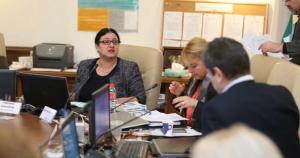 The Central Election Commission of the Republic of Bulgaria also sent greetings to all of its international partners – the election management bodies from around the world, the international organizations concerned with the organization and implementation or observation of elections.
The Central Election Commission of the Republic of Bulgaria also sent greetings to all of its international partners – the election management bodies from around the world, the international organizations concerned with the organization and implementation or observation of elections.
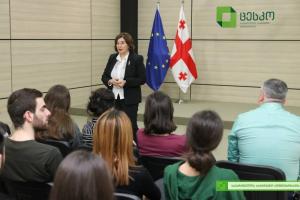 On the occasion of Global Elections Day, the Central Election Commission (CEC) hosted beneficiary students of the authorized program of the Training Center of Ivane Javakhishvili Tbilisi State University and Ilia State University. CEC Chairperson met with young people and talked about the importance of elections.
On the occasion of Global Elections Day, the Central Election Commission (CEC) hosted beneficiary students of the authorized program of the Training Center of Ivane Javakhishvili Tbilisi State University and Ilia State University. CEC Chairperson met with young people and talked about the importance of elections.
Tamar Zhvania highlighted the First Democratic Elections held in Georgia in the previous century. Elections of Constituent Assembly 1919 represent were the first multi-party, democratic elections in the history of Georgia. CEC Chairperson noted the role of youth’s engagement in the electoral process.
“This symbolic coincidence that we celebrate the 100th anniversary of elections in Georgia this February, adds more importance to today's event. It is not accidental that CEC celebrates this special day together with young people. Active engagement of youth in the electoral process is one of the main objectives for our administration”, - Tamar Zhvania told the students.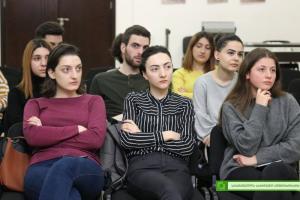
Young people visited CEC exhibition reflecting the electoral history and familiarized with important information on electoral processes. They also visited the CEC library and got introduced with electoral documents and a number of awards CEC has received at different times.
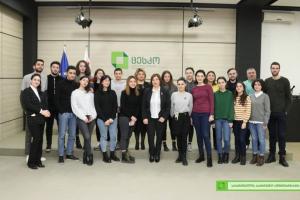 Global Elections Day is celebrated on the first Thursday of February since 2005. The Association of European Election Officials (ACEEEO) initiated it at the global conference held in September 2005 where conference participants, including, election experts and election officials have proposed an initiative to set an annual date dedicated to the elections.
Global Elections Day is celebrated on the first Thursday of February since 2005. The Association of European Election Officials (ACEEEO) initiated it at the global conference held in September 2005 where conference participants, including, election experts and election officials have proposed an initiative to set an annual date dedicated to the elections.
The celebration of this date contributes to drawing public attention towards those crucial processes which are prompted in each state through the democratic elections.
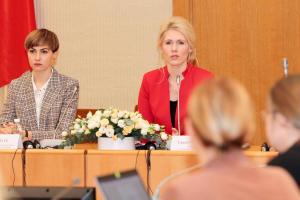 To celebrate the Global Elections Day on the 7th of February, the Central Electoral Commission of the Republic of Lithuania organised a discussion with a topic “Transparency in the Elections 2019: Theoretical and Practical Aspects”. The discussion touched upon bribery of voters, possible risks of corruption during the elections, cyber security, political advertisement, protection of personal data, the experience of observing the elections. Everyone willing to participate in the discussion were invited to register.
To celebrate the Global Elections Day on the 7th of February, the Central Electoral Commission of the Republic of Lithuania organised a discussion with a topic “Transparency in the Elections 2019: Theoretical and Practical Aspects”. The discussion touched upon bribery of voters, possible risks of corruption during the elections, cyber security, political advertisement, protection of personal data, the experience of observing the elections. Everyone willing to participate in the discussion were invited to register.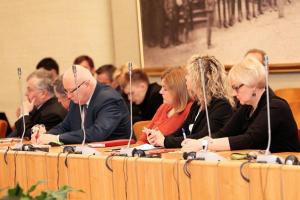
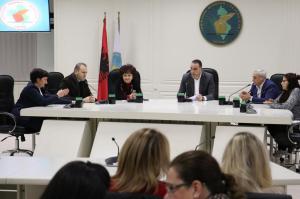 Central Election Commission of Albania, as it has already become a tradition, celebrated Global Elections Day on the first Thursday of February.
Central Election Commission of Albania, as it has already become a tradition, celebrated Global Elections Day on the first Thursday of February.
The symbolism and goal of this day, brought together in the CEC premises, women activists of civil society, the roma youth of the Institute of Roma Culture in Albania, disabled people, students of the Faculty of Journalism, graduates of Tirana secondary schools.
Commissioner of CEC, Mr. Bledar Skënderi in his opening remarks highlighted the importance of free vote as a means 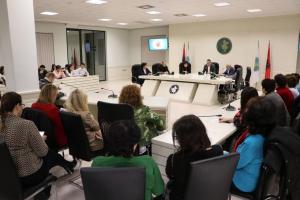 of guaranteeing the progress of activities that consolidate democracy and strengthen the rule of law. "Today, throughout the democratic world, the electoral process is based on clearly articulated legislation that set out the mechanisms for organizing, overseeing and developing the electoral process, based on universal principles of periodic elections, free, secret and equal vote. The legal framework provides a solid basis for democratic and fair elections. But, of the same importance is that everyone should express his opinion through voting. The Commissioner Mr. Skënderi also emphasised: “There is no democracy without voting and there is no democracy without a free vote! "
of guaranteeing the progress of activities that consolidate democracy and strengthen the rule of law. "Today, throughout the democratic world, the electoral process is based on clearly articulated legislation that set out the mechanisms for organizing, overseeing and developing the electoral process, based on universal principles of periodic elections, free, secret and equal vote. The legal framework provides a solid basis for democratic and fair elections. But, of the same importance is that everyone should express his opinion through voting. The Commissioner Mr. Skënderi also emphasised: “There is no democracy without voting and there is no democracy without a free vote! "
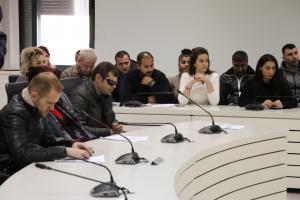 In the sessions provided for the different social groups, the topics and discussions of the participants were focused on the typologies of problems reflected by electoral behaviour of the comunities they belong to, the ways and methods that can be used to alleviate them.
In the sessions provided for the different social groups, the topics and discussions of the participants were focused on the typologies of problems reflected by electoral behaviour of the comunities they belong to, the ways and methods that can be used to alleviate them.
The organisation of the activities confirmed the institutional and social commitment for greater engagement to find new areas and collaborate to raise the citizen awareness for the importance of election participation, as the most precious contribution to democracy and the country's European path!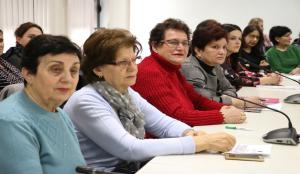
CEC ensured the participants for institutional commitment in informing and raising awareness of the voters, as the right way of realising the institutional mission of conducting electoral processes in line with international standards.
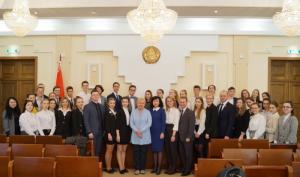 On the occasion of the Global Elections Day, the Central Commission of the Republic of Belarus on Elections and Republican Referendums on February 5, 2020 organized a meeting with a group of high school students in Minsk.
On the occasion of the Global Elections Day, the Central Commission of the Republic of Belarus on Elections and Republican Referendums on February 5, 2020 organized a meeting with a group of high school students in Minsk.
Young Belarusian citizens are potential voters and therefore it is important to form a responsible, informed attitude towards the elections.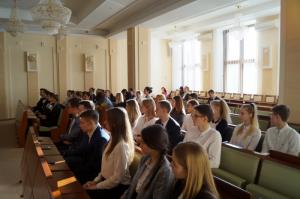
The meeting was held in the building where the country’s highest legislative and representative body is located – the House of Representatives of the National Assembly of the Republic of Belarus which in itself causes genuine interest in the process of forming this state body. This event was covered by representatives of national media.
Meetings with young people including those dedicated to the Global Elections Day are traditional for the CEC of Belarus.
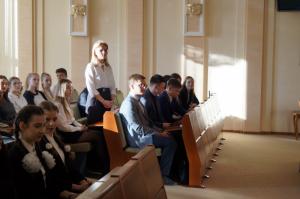
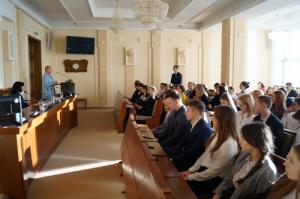
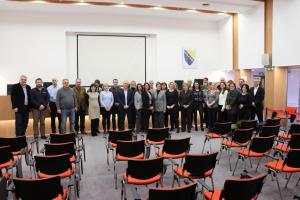 At the Conference of the Association of the Election Officials of Europe (ACEEEO) held in 2005 more than 20 member states have agreed to launch an initiative to mark first Thursday in February as a day, which would represent a trademark of democratic elections worldwide, namely as the Global Elections Day. The BiH Central Election Commission has been promoting the initiative for fifteen years already. On that occasion the BiH CEC had on February 6, 2020 held today a meeting with the employees of the BiH CEC Secretariat and dr. Ahmet Šantić, member of the BiH CEC delivered a speech.
At the Conference of the Association of the Election Officials of Europe (ACEEEO) held in 2005 more than 20 member states have agreed to launch an initiative to mark first Thursday in February as a day, which would represent a trademark of democratic elections worldwide, namely as the Global Elections Day. The BiH Central Election Commission has been promoting the initiative for fifteen years already. On that occasion the BiH CEC had on February 6, 2020 held today a meeting with the employees of the BiH CEC Secretariat and dr. Ahmet Šantić, member of the BiH CEC delivered a speech.
A joint message was sent that continuous efforts must be made to improve election 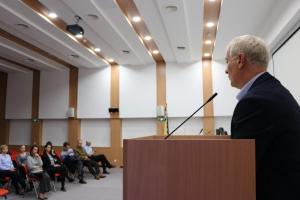 legislation and election process. Every previous elections always provide an opportunity for the EMBs to introduce more quality in terms of organization, independence and transparency of work, but are also an opportunity for the legislator to eliminate all shortcomings and to improve the election process on time.
legislation and election process. Every previous elections always provide an opportunity for the EMBs to introduce more quality in terms of organization, independence and transparency of work, but are also an opportunity for the legislator to eliminate all shortcomings and to improve the election process on time.
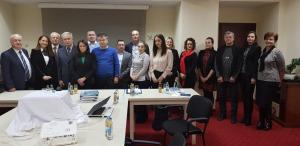 The BiH Central Election Commission has invited municipal/city election commissions in Bosnia and Herzegovina to organize events in their respective municipalities or regionally in schools or other appropriate locations and to contribute to promoting the initiative to mark the Global Elections Day.
The BiH Central Election Commission has invited municipal/city election commissions in Bosnia and Herzegovina to organize events in their respective municipalities or regionally in schools or other appropriate locations and to contribute to promoting the initiative to mark the Global Elections Day.
A meeting of the BiH CEC representatives with the Election Commission of Brčko District of BiH and the representatives of 13 other election commissions of basic constituency was also held on the same occasion.
As part of the activities to mark the Global Elections Day, the Municipal Election Commission of Ilijaš Municipality delivered a lecture at the the Secondary School Center "Nedžad Ibrišimović" Ilijaš to the students of the third grade of the Secondary School, who are about to take an active part in the electoral process at the next 2020 elections.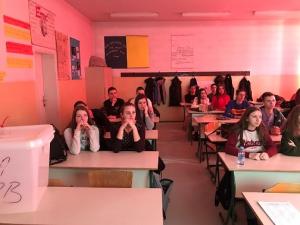
The City Election Commission of Mostar organized lectures to the secondary school students in Mostar.
Municipal Election Commission Novo Sarajevo held a formal session to mark the Global Elections Day.
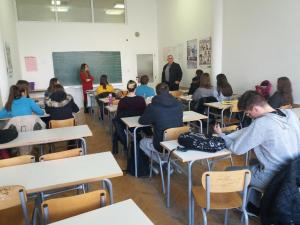 The media outlets in BiH reported on the activities of the election commissions to promote the initiative to mark the Global Elections Day. Below are the links to only some of the reports:
The media outlets in BiH reported on the activities of the election commissions to promote the initiative to mark the Global Elections Day. Below are the links to only some of the reports:
bhrt.ba/cik-promovira-inicijativu-za-obil%D1%98eza…/
radioilijas.ba/obiljezen-svjetski-dan-izbora/
rtvslobomir.com/vije…/1295/svjetski-dan-izbora-video
fena.ba/…/u-gorazdu-obiljezen-svjetski-dan-izbora
vijesti.ba/…/cik-promovira-inicijativu-za-obiljezav…
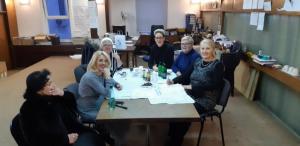
 On the occasion of the Global Elections Day on 6 February 2020 the Central Election Commission of the Republic of Bulgaria held an official session together with the representatives of the Public Council of the Central Election Commission and students from the Law Faculty at the Sofia University “St. Kliment Ohridski”.
On the occasion of the Global Elections Day on 6 February 2020 the Central Election Commission of the Republic of Bulgaria held an official session together with the representatives of the Public Council of the Central Election Commission and students from the Law Faculty at the Sofia University “St. Kliment Ohridski”.
The Chairperson of the Central Election Commission, Ms. Stefka Stoeva welcomed the future jurists with the words: “The presence of young and inspired people is always an opportunity for discussions and exchange of ideas.”
The Law students were invited to participate in the session of the Central Election Commission. They made a proposal the training of the right to vote should start as early as in the senior classes at school so as to ensure enough time for the young people to make their informed choice and to be more active during elections. “Elections are a primary pillar of democracy and it is our duty to be active and to vote”, said they.
Representatives from the Public Council, which is an advisory body to the Central Election Commission and includes non-governmental and civil organizations, congratulated all the attendees for the feast and added that the honest and transparent conduction of elections is an obligation of the electoral administration and congratulated the Central Election Commission on its good job.
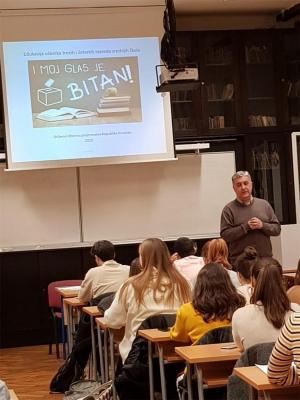 The State Electoral Commission of the Republic of Croatia marked the Global Elections Day on 6th February 2020 with the launch of the second part of its education programme „My vote also counts!“.
The State Electoral Commission of the Republic of Croatia marked the Global Elections Day on 6th February 2020 with the launch of the second part of its education programme „My vote also counts!“.
The State Electoral Commission finds the education of the electorate, especially that of first-time voters of considerable importance and it has therefore included it in its 2020-2022 Strategic Plan. The first part of the education of young voters „My vote also counts!“ took place in 2018-2019 and reached more than 1100 students of the final year of high school all over Croatia,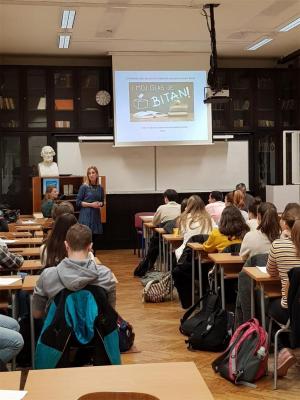 educating them on elections and suffrage in general and encouraging them to vote for the first time in 2019 elections (EU elections in May and Presidential elections in December). As part of the education, a number of students took part in mock elections where they were able to acquaint themselves with procedures at a polling station.
educating them on elections and suffrage in general and encouraging them to vote for the first time in 2019 elections (EU elections in May and Presidential elections in December). As part of the education, a number of students took part in mock elections where they were able to acquaint themselves with procedures at a polling station.
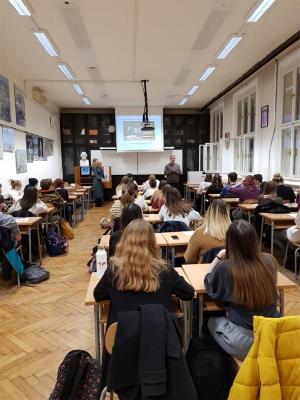 The project proved to be very successful based on the positive reviews of participating students and the second part of it was launched on the Global Elections Day this year with a lecture and mock elections in a Zagreb high school. The report on it is available in Croatian on izbori.hr/…/obavijest-o-pocetku-odrzavanja…/2233. The State Electoral Commission plans to hold further lectures this year ahead of Parliamentary elections which are to be held in autumn.
The project proved to be very successful based on the positive reviews of participating students and the second part of it was launched on the Global Elections Day this year with a lecture and mock elections in a Zagreb high school. The report on it is available in Croatian on izbori.hr/…/obavijest-o-pocetku-odrzavanja…/2233. The State Electoral Commission plans to hold further lectures this year ahead of Parliamentary elections which are to be held in autumn.
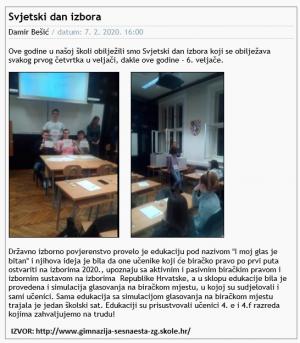
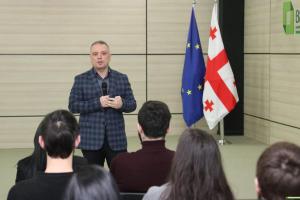 On the occasion of Global Elections Day, the Central Election Commission (CEC) hosted the members of the Parliament of the Students of Georgia. Giorgi Sharabidze, CEC Deputy Chairperson met the students of four high education institutions and talked about the importance of elections.
On the occasion of Global Elections Day, the Central Election Commission (CEC) hosted the members of the Parliament of the Students of Georgia. Giorgi Sharabidze, CEC Deputy Chairperson met the students of four high education institutions and talked about the importance of elections.
“Today is the Global Elections Day. It is well known, that the only way to form a government in all democratic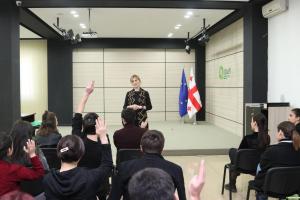 countries is to hold elections. Despite many complications, Georgia, with its experience, past, present and future, is on the path of development from 1919 to the present. We have variety of means of communication and a clear vision to constantly improve our performance for the advantage of stakeholders, and above all, for the benefit of the voters” – declared Giorgi Sharabidze during the meeting with youth.
countries is to hold elections. Despite many complications, Georgia, with its experience, past, present and future, is on the path of development from 1919 to the present. We have variety of means of communication and a clear vision to constantly improve our performance for the advantage of stakeholders, and above all, for the benefit of the voters” – declared Giorgi Sharabidze during the meeting with youth.
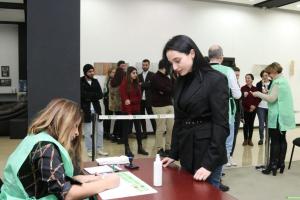 As part of the event, Natia Ioseliani, the representative of the Training Center held a seminar for youth. A mocking voting process was also organized for the visitors: The youth practiced all the stages that the voter goes through at the polling station on Election Day.
As part of the event, Natia Ioseliani, the representative of the Training Center held a seminar for youth. A mocking voting process was also organized for the visitors: The youth practiced all the stages that the voter goes through at the polling station on Election Day.
Young people got acquainted with the photo exhibition reflecting the electoral history. At the end of the meeting, they also visited the CEC library and got introduced with electoral documents and a number of awards CEC has received at different times.
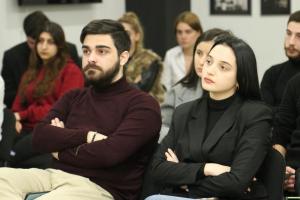
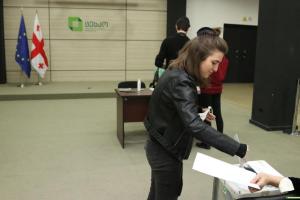
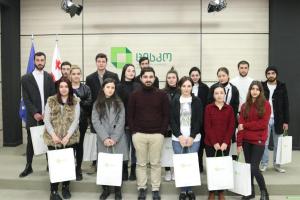 Global Elections Day is celebrated on the first Thursday of February since 2005. The Association of European Election Officials (ACEEEO) initiated it at the global conference held in September 2005 where conference participants, including, election experts and election officials have proposed an initiative to set an annual date dedicated to the elections.
Global Elections Day is celebrated on the first Thursday of February since 2005. The Association of European Election Officials (ACEEEO) initiated it at the global conference held in September 2005 where conference participants, including, election experts and election officials have proposed an initiative to set an annual date dedicated to the elections.
ACEEEO President Speaks at the Event Held in London School of Economics (LSE)
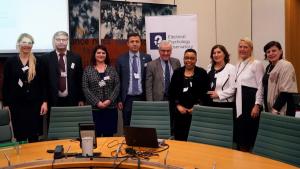 On 6 February, Chairperson of the Central Election Commission (CEC) of Georgia and the President of the Association of European Election Officials (ACEEEO), Tamar Zhvania, participated in the formal launch of the new Electoral Psychology Observatory (EPO) in the London School of Economics (LSE). By the invitation of the director of LSE’s Electoral Psychology Observatory, Professor Michael Bruter, Tamar Zhvania delivered opening remarks, which coincided with the celebration of Global Election Day. The event also included an academic workshop where world-leading scholars in the election field discussed innovative concepts and approaches.
On 6 February, Chairperson of the Central Election Commission (CEC) of Georgia and the President of the Association of European Election Officials (ACEEEO), Tamar Zhvania, participated in the formal launch of the new Electoral Psychology Observatory (EPO) in the London School of Economics (LSE). By the invitation of the director of LSE’s Electoral Psychology Observatory, Professor Michael Bruter, Tamar Zhvania delivered opening remarks, which coincided with the celebration of Global Election Day. The event also included an academic workshop where world-leading scholars in the election field discussed innovative concepts and approaches.
At the opening ceremony, Ms. Zhvania congratulated event participants with the establishment of a new research platform in the London School of Economics and whished them great success in promoting new researches, studies, and discoveries in the election filed for advancing worldwide democracy through genuine elections. Ms. Zhvania also shared the experience of the Election Administration (EA) of Georgia related to the past cooperation with the International Center for Electoral Psychology (ICEP) founded by EPO’s Director. In this regard she talked about the results of joint research conducted in Georgia in 2014.
During the formal launch of the Electoral Psychology Observatory, the new projects along with the book “Inside the Mind of a Voter” published by Princeton University Press and co-authored by EPO’s Director, and Deputy-Director, as well as a new Almanac of Electoral Ergonomics were presented to the event participants.
In the course of her visit, Ms. Zhvania also participated in the interactive roundtable discussion held in the Houses of Parliament within the framework of the launch event. The roundtable was dedicated to the discussion of the experience of first time voters, where Ms. Zhvania shared the experience of the CEC of Georgia in promoting youth electoral participation and talked about the Election Administration’s projects targeting the first time voters in Georgia.
The event was attended by leading academicians, scholars, researchers, students and practitioners in the field of elections as well as representatives of local and international CSOs, MPs and Election Management Bodies leaders.
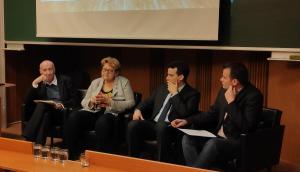 On the Global Elections Day (6 February) the ACEEEO Secretariat organized a ‘Roundtable discussion on the thirty years of the Hungarian democratic elections’. The roundtable marked the anniversary of the first free Hungarian elections which were held in the spring of 1990, following the regime-change. It also gave an overview of the main changes in the electoral field which occurred during the past thirty years, as well as introduced insights about the possible ways of development in the field of elections in the next decade. The roundtable was attended by electoral experts, practitioners and members of academia.
On the Global Elections Day (6 February) the ACEEEO Secretariat organized a ‘Roundtable discussion on the thirty years of the Hungarian democratic elections’. The roundtable marked the anniversary of the first free Hungarian elections which were held in the spring of 1990, following the regime-change. It also gave an overview of the main changes in the electoral field which occurred during the past thirty years, as well as introduced insights about the possible ways of development in the field of elections in the next decade. The roundtable was attended by electoral experts, practitioners and members of academia.
The first session was dedicated to the first elections held in 1990 and the societal-political context influencing the 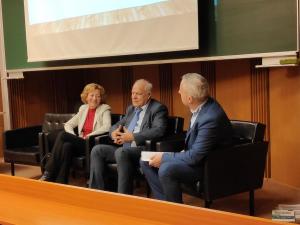 organization of these elections. Participants of the first session, Márta Dezső, Professor Emerita of the Eötvös Loránd University and Head of the Documentation and Scientific Centre of the ACEEEO as well as Zoltán Kovács, former Deputy Head of the National Election Office both recalled that the preparation to these elections were conducted among difficult circumstances, since there was a lack of comparative knowledge and infrastructure. Among others, they emphasized that ultimately these elections gave an impetus to the establishment of the ACEEEO in 1991 as an electoral forum for the new democracies of the Central and Eastern European region.
organization of these elections. Participants of the first session, Márta Dezső, Professor Emerita of the Eötvös Loránd University and Head of the Documentation and Scientific Centre of the ACEEEO as well as Zoltán Kovács, former Deputy Head of the National Election Office both recalled that the preparation to these elections were conducted among difficult circumstances, since there was a lack of comparative knowledge and infrastructure. Among others, they emphasized that ultimately these elections gave an impetus to the establishment of the ACEEEO in 1991 as an electoral forum for the new democracies of the Central and Eastern European region.
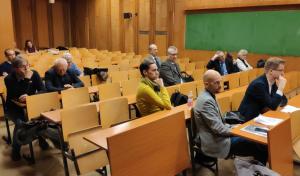 In the second session the developments and challenges of the electoral system in the past 30 years were discussed. Emília Rytkó, former Head of the National Election Office, Róbert László, Electoral Expert of the Political Capital, and István Kukorelli, Professor of the Eötvös Loránd University and former Chairman of National Election Commission discussed the role and the main challenges of the EMBs, the communication of the EMB with the electorate and other stakeholders, as well as the role of the Constitutional Court in dispute resolution. One of the main lessons-to-learn of this session was that a constant civic- and stakeholders’ education is crucial for the elections, however it should be conducted in the most accessible and tailor-made manner.
In the second session the developments and challenges of the electoral system in the past 30 years were discussed. Emília Rytkó, former Head of the National Election Office, Róbert László, Electoral Expert of the Political Capital, and István Kukorelli, Professor of the Eötvös Loránd University and former Chairman of National Election Commission discussed the role and the main challenges of the EMBs, the communication of the EMB with the electorate and other stakeholders, as well as the role of the Constitutional Court in dispute resolution. One of the main lessons-to-learn of this session was that a constant civic- and stakeholders’ education is crucial for the elections, however it should be conducted in the most accessible and tailor-made manner.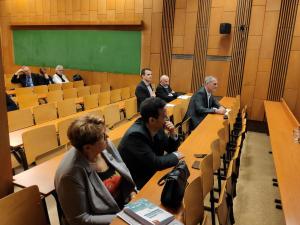
The third session was dedicated to the ideas about the next decade of the Hungarian elections. The session was opened by László Kührner, University Student of the Eötvös Loránd University who underlined that the overall participation of the young generation is dependent of some high-impact topics, e.g. the climate issues which recently gained broad activism among youth. 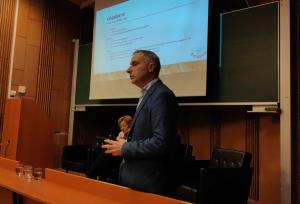 The discussion following with the participation of Gábor Tóka, Professor of the Central European University and Attila Szabó, Electoral Expert of the Hungarian Civil Liberties Union, touched upon the main challenges of the current elections in Hungary, including the legal, political and information disputes, as well the possible global trends in elections. It was identified that elections will continue to serve as the basic tool for democracies in decades to come. However, there might be some minor procedural changes, like the lowering of the voting age.
The discussion following with the participation of Gábor Tóka, Professor of the Central European University and Attila Szabó, Electoral Expert of the Hungarian Civil Liberties Union, touched upon the main challenges of the current elections in Hungary, including the legal, political and information disputes, as well the possible global trends in elections. It was identified that elections will continue to serve as the basic tool for democracies in decades to come. However, there might be some minor procedural changes, like the lowering of the voting age.
The Central Commission for Elections and Referenda of the Kyrgyz Republic held an Open Day together with the OSCE Program Office in Bishkek and the International Foundation for Electoral Systems (IFES). As part of this event, a meeting was organized with students with the participation of the Chairperson of the CEC Nurjan Shaildabekova. In her presentation the Chairperson highlighted the role of youth in the electoral process.
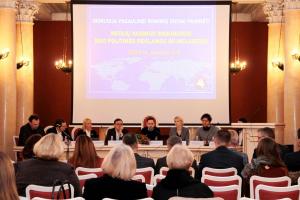 On the occasion of Global Elections Day, on the 4th of February, the Central Electoral Commission of the Republic of Lithuania has organised a discussion on the topic „The role of the media in elections: from political advertising to fake news“.
On the occasion of Global Elections Day, on the 4th of February, the Central Electoral Commission of the Republic of Lithuania has organised a discussion on the topic „The role of the media in elections: from political advertising to fake news“.
During the event, the chairperson of the Central Electoral Commission of the Republic of Lithuania pointed out that the last elections showed the importance of political advertising on social networks in Lithuania. 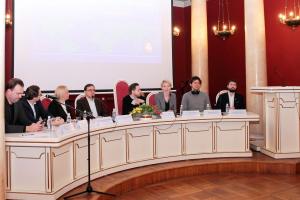 The participants of the discussion touched the topic of controlling political advertising on social media, talked about disinformation and its extent, brought up the question of the turnout at the elections.
The participants of the discussion touched the topic of controlling political advertising on social media, talked about disinformation and its extent, brought up the question of the turnout at the elections.
The discussion focused on such topics as external influences on elections, fake news, disinformation, the responsibility of journalists and media, raising awareness and rationality of voters.
At the end of the discussion, participants came to an agreement that the role of the media in the field of elections is huge and constantly growing, so every effort will be made to regulate it as much as possible.
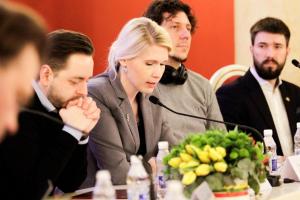
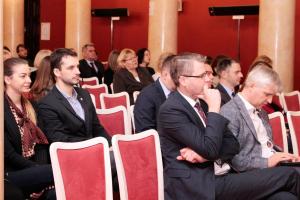
 Central Election Commission of the Republic of Moldova marked Global Elections Day on February 6, 2020.
Central Election Commission of the Republic of Moldova marked Global Elections Day on February 6, 2020.
On this occasion, a group of students from the Faculty of International Relations, Political and Administrative Sciences from Moldova State University organized a mock meeting of the Central Electoral Commission. According to the agenda, students debated different aspects of the legal framework that regulate the organization and conduct of elections for the Moldovan citizens residing abroad.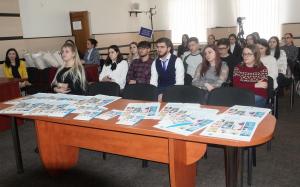
Additionally, public lesson with the topic ‚Democracy can be learned’ was deployed for the 5th grade pupils from the Theoretical Lyceum "Ion Vatamanu" from Strășeni region. The activity aimed to provide to the future voters information about the electoral processes from the Republic and to create habbits for the civic participation.
The Chairman of the Central Election Commission, Dr. Dorin Cimil participated to the launch of the Electoral Psychology Observatory. The international event was organized in the United Kingdom, by the London School of Economics.
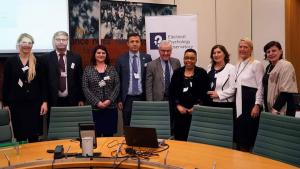
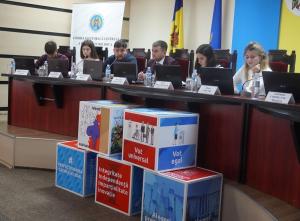
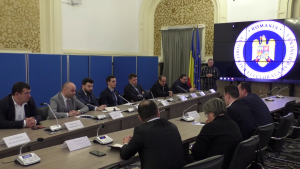 The Permanent Electoral Authority (PEA) celebrated the Global Election Day by a public debate and press conference with the partner institutions with election responsibilities and parliamentary political parties’ representatives. The event was chaired by Mr. Constantin-Florin Mituletu-Buică, the President of the Permanent Electoral Authority who emphasized the extensive and successful activity carried out by the Authority for organising and conducting the 2019 Presidential elections.
The Permanent Electoral Authority (PEA) celebrated the Global Election Day by a public debate and press conference with the partner institutions with election responsibilities and parliamentary political parties’ representatives. The event was chaired by Mr. Constantin-Florin Mituletu-Buică, the President of the Permanent Electoral Authority who emphasized the extensive and successful activity carried out by the Authority for organising and conducting the 2019 Presidential elections.
The event was attended by officials and experts and on behalf of the Permanent Electoral Authority, the Ministry of Interior, the Special Telecommunications Service, as well as representatives of the parliamentary political parties and media.
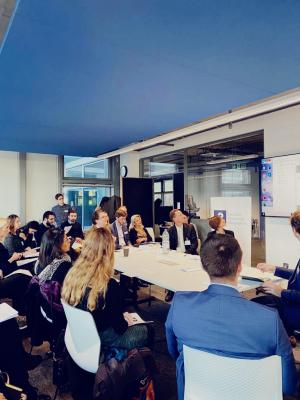 The PEA specialists described the election activities undertaken in 2019, underling the electoral legislatives measures implemented for the Presidential elections, the activity of financing political parties and electoral campaigns as well as the IT tools and systems used for preventing the illegal voting and monitoring the turnout and also the work of the people inside the electoral bureaus and polling stations.
The PEA specialists described the election activities undertaken in 2019, underling the electoral legislatives measures implemented for the Presidential elections, the activity of financing political parties and electoral campaigns as well as the IT tools and systems used for preventing the illegal voting and monitoring the turnout and also the work of the people inside the electoral bureaus and polling stations.
During the meeting all the participants shared their experiences regarding their involvement in organising the electoral process and concluded the successful cooperation between the Romanian institutions in organising and conducting the 2019 Presidential elections.
The PEA President underlined the fact that in 2020 in Romania will be organised two types of elections: local and parliamentary elections and he is confident in the same collaboration with the partner institutions and stakeholders in all the election activities will follow this year.
Moreover, today PEA is pleased to attend the Launch of the Electoral Psychology Observatory, in United Kingdom at the London School of Economics, international event organised on the occasion of the Global Election Day

